Complex Systems Scholars
This directory presents the profiles of 329 scholars, 155 labs and 95 organizations in the field of Complex Systems:
- In the following country: France,
Its aims are to foster interactions between protagonists in the fields of Complex Systems science and Complexity science, as well as to increase their visibility at the international scale.
- This directory is open. Anybody can have her profile included provided it is related to Complex Systems science and Complexity science. Personal data are given on a voluntary basis and people are responsible for the validity and integrity of their data.
- This directory is edited by the ISCPIF. This initiative is supported by the Complex Systems Society (http://cssociety.org). Contributions and ideas are welcome to improve this directory. Please feedback
Global statistics
Main keywords for this listing
Scholars by alphabetical order

Patrice Abry - France
- Laboratoire de Physique ENS de Lyon


Sophie Achard - France
- Senior researcher CNRS
- Grenoble Images Parole Signal Automatique (Gipsa-lab)
- Université Grenoble-Alpes (UGA)
- https://www.gipsa-lab.grenoble-inp.fr/%7Esophie.achard/
- Research
wavelets, dependence measure, brain connectivity, graphs, dynamics


Quentin Agren - France
- ((CDSP))


Ada Altieri - France
- Université Paris Cité


Isabelle Alvarez - France
- ((LISC))
- (INRAE)


Dr. Marion Amalric - France
- Maitre de conférence
- Research
environment, wetlands, appropriation, territory


Prof. Dr. Francois Amblard - France
- Associate Professor
- Center for Soft & Living Matter
- IBS - UNIST - Ulsan - Korea


Dr. Frédéric Amblard - France
- Lecturer
- Institut de Recherche en Informatique de Toulouse (IRIT)
- Université Toulouse 1 - Capitole
- http://w3.univ-tlse1.fr/ceriss/soc/perso/Amblard/
- Research
I am interested in the network object (social, scientific, interbank) and in its dynamics. I want to identify and understand network mechanisms and I mainly used agent-based simulation to this aim.


Ing. ENSEM François Arlabosse - France
- Vice-Président
- (_NULL)
- (CYBEL)
- https://www.cybel.fr
- Research
Machine Learning, Artificial Intelligence, Gaussian Processes, Ergodic theory


Muhammad Arslan - France
- Laboratoire d_Informatique de Bourgogne


Muhammad Arslan - France
- (LIB)


Dr. Saïd Assar - France
- Associate Professor
- Laboratoire en Innovation, Technologies, Economie et Management
- Telecom Ecole de Management, Institut Mines Telecom
- http://www-public.it-sudparis.eu/~assar/
- Research
Saïd holds a PhD degree in Computer Science from P & M Curie Univ., Paris. He is an Associate Professor of IS at Télécom Ecole de Management, and is associate researcher at CRI Research Lab, Sorbonne University, France. In 2012, he was a visiting scholar at Lund University, Sweden, with the Software Eng. Research Group (SERG). His research interests include IS modeling, method and tools for IS development, service-orientation in IS, empirical software engineering, e-learning and e-government.


Dr. David Bailly - France
- Post-Doc
- Research
Arts


Dr. Arnaud Banos - France
- CNRS Researcher
- Géographie Cités
- Université Paris 1 – Panthéon Sorbonne (Paris 1)
Centre National de la Recherche Scientifique (CNRS) - http://arnaudbanos.perso.neuf.fr/banos.html
- Research
I'm mainly interested in modelling and simulating complex spatial systems. To do so, I explore new perspectives in geovisualisation, geocomputation and geosimulation.


Jean-Marc Bardet - France
- Prof.
- Université Paris 1 - Panthéon Sorbonne (Paris 1)


Alain Barrat - France
- Centre de Physique Théorique (CPT)


Olivier Barreteau - France
- Chercheur
- (UMR G-EAU)
- Institut national de recherche en sciences et technologies pour l_environnement et l_agriculture (IRSTEA)


Samuel Bates - France
- (GRANEM)


M. Jean-Michel Batto - France
- (Micalis)
- Institut National de la Recherche Agronomique (INRA)


Bilel Benbouzid - France
- (LISIS)


Alexis Bénichou - France
- Decision and Bayesian Computation Lab, Neuroscience Dpt, Institut Pasteur


Dr. Hugues Berry - France
- Senior Researcher (tenured)
- Centre de Recherches INRIA Grenoble Rhône Alpes, Lyon
- Institut National de Recherche en Informatique et Automatique (INRIA)
- http://www.inrialpes.fr/Berry

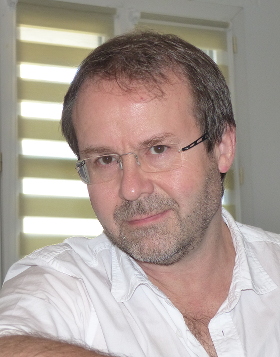
Prof. Dr. Cyrille Bertelle - France
- Prof. Dr.
- Laboratoire d_Informatique, du Traitement de l_Information et des Systèmes (LITIS)
- Université Le Havre Normandie (ULH)
- https://litis.univ-lehavre.fr/%7Ebertelle


marie-pierre BES - France
- (LISST)

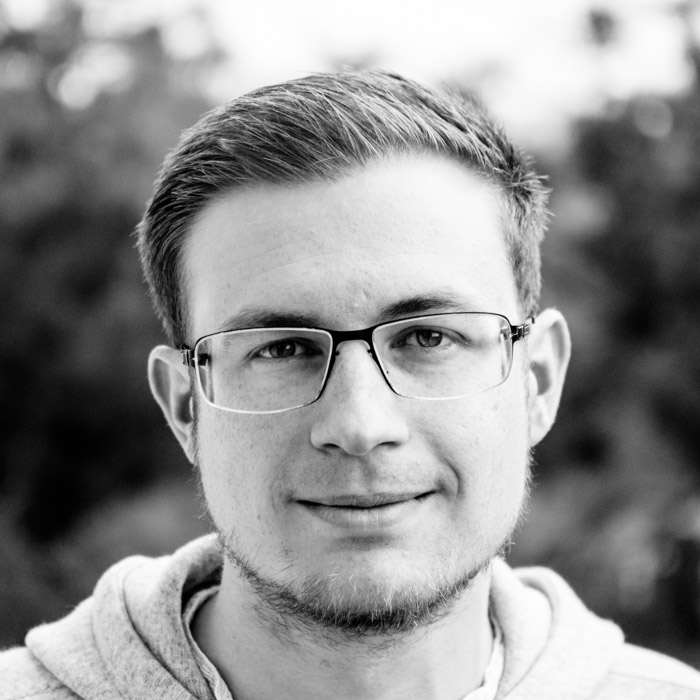
M. Julian Bilcke - France
- Software Engineer
- (MFG Labs)
- http://twitter.com/flngr

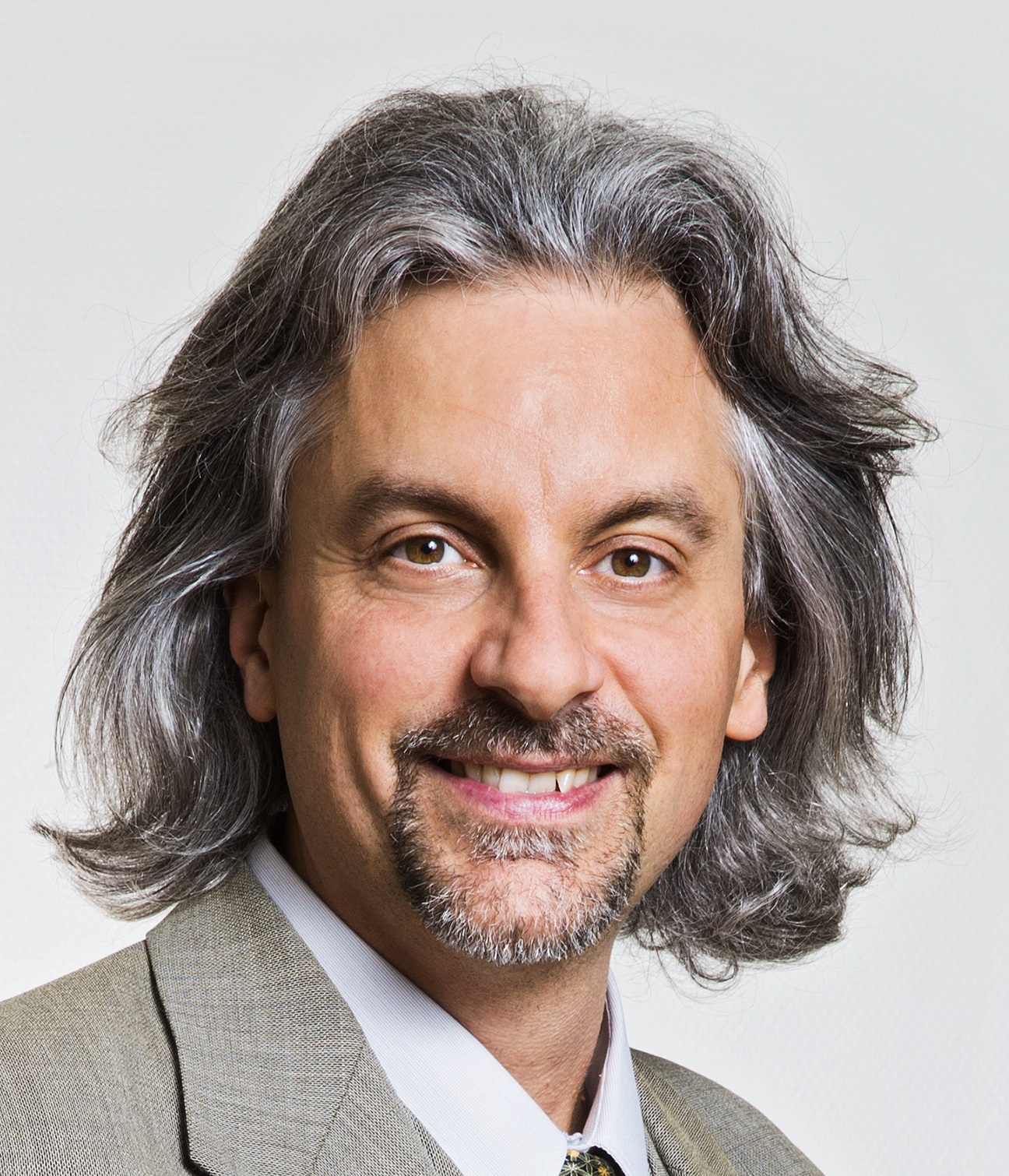
Dr. Yuri Biondi - France
- Cnrs, Tenured Research Fellow
- ((_NULL))
- University Paris Dauphine PSL
- http://yuri.biondi.free.fr/
- Research
accounting economics and law, finance, law and economics, sociophysics, econophysics, dynamic systems analysis, complex systems in economics and society


M. Michel Bloch - France
- Chairman
- Emergence Paris
- www.mountvernon.fr
- Research
Application of complex systems to sociology and marketing


Jérémie Bosom - France
- Cognitions Humaines et Artificielle


David Bouchez - France


Nadia Boukhelifa - France
- (GMPA/MALICES/CEPIA)


Dr. Daniele Bourcier - France
- Pr
- (CMB)
- Centre National de la Recherche Scientifique (CNRS)
- http://www.cersa.org
- Research
modelization of the complexity of legal systems
legal system as a dynamic complex system
evolution of caselaw (ontology & langage)
Systems of governance and regulation
creative commons and complexity
Legislation & contracts (cloud computing) with drafting tools
environnement et biodiversité : comme systèmes


Quentin Bourgeais - France
- (CETAPS - UR 3832)


Dr. Paul Bourgine - France
- Senior Scientist
- UNESCO UniTwin CS-DC (Complex Systems Digital Campus)
- Université Le Havre Normandie (ULH)
- https://www.crea.polytechnique.fr/
- Research
cognition, social cognition, genetic networks, neural networks, social networks, embryogenesis, morphodynamics, cognitive economics, learning and adaptive systems, artificial life, mathematics, theoretical computer science, statistical physics


Costas Bouyioukos - France
- Maitre de conferences
- Epigenetic and Cell fate UMR7216
- Université Paris 7 - Diderot (Paris 7)
- http://parisepigenetics.com/annuaire/?member%3D150


sofiane bouzid - France
- https:/www.archeorient.mom.fr/annuaire/bouzid-sofiane


Dr. Nicolas Bredeche - France
- Associate Professor
- Laboratoire de Recherche en Informatique de l'Université de Paris Sud (LRI)
- Université Paris Sud 11 (Paris Sud)
- http://www.lri.fr/~bredeche/


M. Christophe Bruchansky - France
- Founder and philosophical auth
- (_NULL)
- Plural think tank
- http://plural.world


M. François Brun - France
- Engineer
- Acta, les instituts techniques agricoles (ACTA)
- www.modelia.org
- Research
Evaluation of model


Dr. Julia Buitink - France
- researcher
- www.inra.fr


Léo Bulckaen - France
- Stage de fin d_étude
- Institut Lumière Matière (Lyon 1)
- Centre National de la Recherche Scientifique (CNRS)


Margaux Calon - France
- Institut des Systèmes Complexes de Paris Ile-de-France (ISCPIF)


Fadila Camara - France
- Institut des Systèmes Complexes de Paris Ile-de-France (ISCPIF)


Giulia Carra - France
- Institut des Systèmes Complexes de Paris Ile-de-France (ISCPIF)


Ms. Simon P. Carrignon - France
- PhD candidate
- Barcelona Supercomputing Center
- Universitat Pompeu Fabra


Dr. Yves Caseau - France
- Research
Entreprise simulation, complex situations explored as serious games, GTES: Game-theoretical and Evolutionary Simulation. I study the influence of enterprise organization and process methods and commmunication on performance.


Dr. Fabrice L. Cavarretta - France
- Asst. Prof.
- Ecole Supérieure des Sciences Economiques et Commerciales (ESSEC)
- Research
Small group dynamics non-linear effects on performance, in particular how in-group diversity may influence variance of performance. Emergence of managerial and entrepreneurial behaviour.

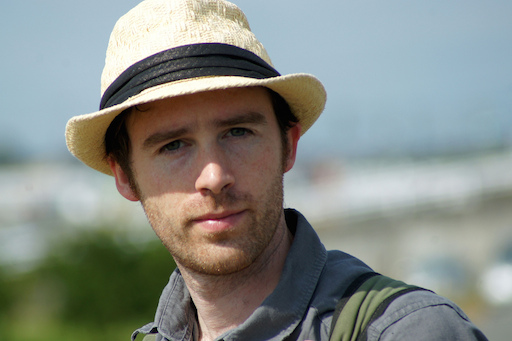
Rémy Cazabet - France
- Laboratoire d_Informatique en Image et Systèmes d_information (LIRIS)
- Université Lyon 1 - Claude Bernard (Lyon 1)


fabienne cazalis - France
- Centre d_Analyse et de Mathématique Sociales (CAMS)
- Centre National de la Recherche Scientifique (CNRS)


fabienne cazalis - France
- chargée de recherche
- Centre d_Analyse et de Mathématique Sociales (CAMS)
- (CNRS EHESS)


Flora Chanvril - France
- CEVIPOF (Sciences Po)


Paul Chapron - France
- Institut des Systèmes Complexes de Paris Ile-de-France (ISCPIF)


Prof. Vincent Chapurlat - France
- Prof.
- ((LGI2P/ISOE))
- IMT Mines Alès
- Research
System and System of systems Engineering___Verification, Formal approaches, combined approaches___System modeling frameworks


Raphaël Charbey - France
- Télécom ParisTech - Dept. Ses


Dr. Hubert Charles - France
- lecturer
- Biologie Fonctionnelle Insectes et Interactions (BF2I)
- Université de Lyon
Institut National de la Recherche Agronomique (INRA)
- Research
Evolution
Transcriptome analysis
System Biology
genetic and metabolic regulation networks
Intracellular symbiosis and evolution


Dr. Stéphane Chauvin - France
- Private Scientist,
- (IMA)
- www.MyDataBall.com
- Research
Data Optimisation, Visualisation Data for Decision Making

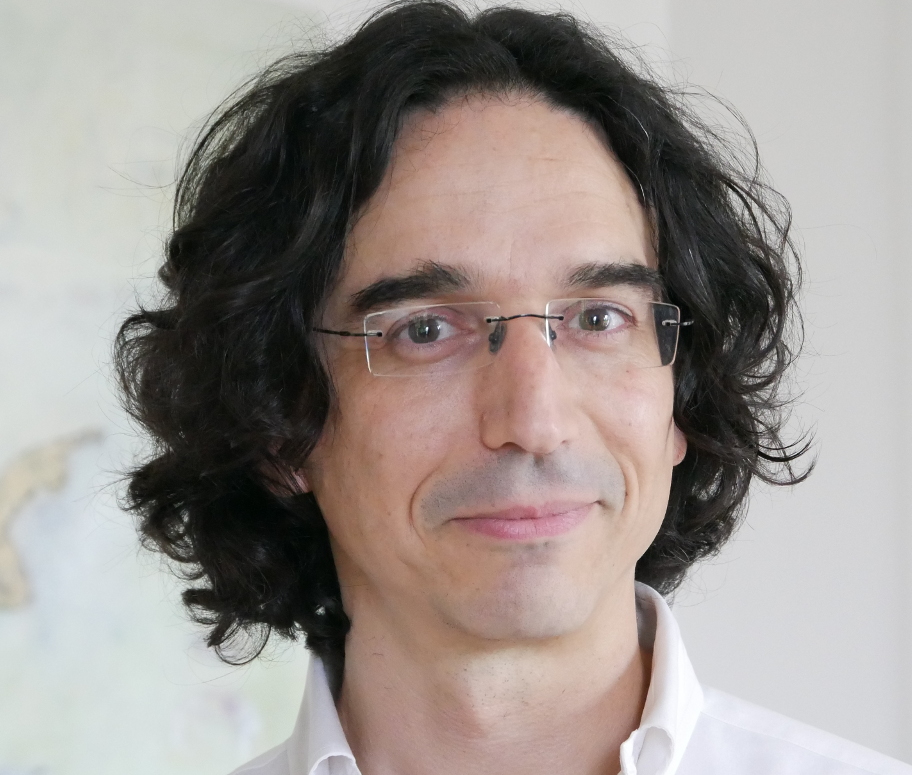
Dr. David Chavalarias - France
- Research Director
- Institut des Systèmes Complexes de Paris Ile-de-France (ISCPIF)
- Centre National de la Recherche Scientifique (CNRS)
- https://chavalarias.org
- Research
David Chavalarias is CNRS Director of Research at the Center of Social Analysis and Mathematics of EHESS. His research is situated at the crossroads between cognitive sciences and complex systems sciences, which he mobilizes for the study of social and cognitive dynamics, both from the point of view of the modeling and the reconstruction of social dynamics from large scale Web data. His highly interdisciplinary work focuses on the modeling of cultural dynamics and socio-semantic networks (academic, press and web), cognitive economics, quantitative epistemology, scientific discovery processes and the visualization of information. He has also initiated several software projects for the analysis of knowledge dynamics and their visualization. David Chavalarias his the Director of the Complex Systems Institute of Paris Ile-de-France and former vice-president of the Complex Systems Society (CSS Service Award in 2014).


Dr. Guillaume Chérel - France
- Research Engineer
- Institut des Systèmes Complexes de Paris Ile-de-France (ISCPIF)
- Centre National de la Recherche Scientifique (CNRS)
- Research
Modelling and simulation of complex systems. Development of methods and software for simulation experiments.


M. Sylvain Chevallier - France
- Assistant professor
- Laboratoire d_Ingénierie des Systèmes de Versailles
- Université de Versailles Saint Quentin
- http://sites.google.com/site/sylvchev/


Pascal Chossat - France
- Directeur de recherche émérite
- UMR 7351 / Mathneuro / UCA Inria CNRS
- (CNRS)


Pascal Chossat - France
- Mathneuro/Inria, umr 7351/GAD/CNRS-Université Côte d_Azur


Dr. Manuel Clergue - France
- Maître de Conférences
- (LAMIA)
- Université des Antilles
- https://lamia.univ-ag.fr/%7Emclergue
- Research
Cognitive Systems - Cellular Automata - Artificial Evolution


Prof. Philippe Collard - France
- Prof.
- Laboratoire d'Informatique, Signaux et Systèmes (I3S)
- Université de Nice-Sophia Antipolis (UNS)
Centre National de la Recherche Scientifique (CNRS) - http://philippecollard.com/


Prof. Pierre Collet - France
- Professor
- Laboratoire des Sciences de l'Ingénieur, de l'Informatique et de l'Imagerie
- Université de Strasbourg (UDS)
- http://newlsiit.u-strasbg.fr/bfo_fr/index.php/Pierre_Collet
- Research
Coordinator of the Digital Campus on Complex Systems of the Strasbourg University (CNSC Strasbourg)
Using massively parallel GPGPU hardware to simulate, model, predict complex systems


Emilie Comes-Trinidad - France
- (CEPAM)


Lucie Costes - France
- (LJAD)


Prof. Michel Cotsaftis - France
- Research
Dynamics and Control of Complex Systems with Applications to Technologic (Robotics, Mecatronics), Industrial (Steel, Commodity and Oil Industry, and Sciencific Domains (Grids, Biology, Chemistry)


Prof. Marie Cottrell - France
- Prof
- SAMM (Statistique, Analyse, Modélisation Multidisciplinaire)
- Université Paris 1 - Panthéon Sorbonne (Paris 1)
- http://samm.univ-paris1.fr/COTTRELL-Marie
- Research
Neural Networks, Statistics, Kohonen Maps, Data Analysis


PhD Christophe Coupé - France
- Research fellow
- Laboratoire Dynamique du Langage (DDL)
- Université Lyon 2 – Lumière
Centre National de la Recherche Scientifique (CNRS)


Dr. Fabien Crauste - France
- Associate Scientist
- Université Lyon 1 – Claude Bernard (Lyon 1)
- http://math.univ-lyon1.fr/~crauste
- Research
Biomathematics : Stem cells differentiation and maturation processes, Blood cell production (erythropoiesis, leukopoiesis) and blood diseases (Chronic Myelogenous Leukemia, periodic blood diseases); Stability, Bifurcations, Asymptotic behavior (PDEs, DDEs).


Dr. Pascal Crépey - France
- Associate Professor
- UPRES EA-7449 Reperes
- ((EHESP))
- Research
Epidemiological modeling, Network models


Christophe Cruz - France
- Prof.
- (((LIB)))


Robin Cura - France
- PhD Student
- Géographie Cités
- Centre National de la Recherche Scientifique (CNRS)
- https://www.parisgeo.cnrs.fr/spip.php?article6416%2526lang%253Den


Dr. Francesco d'Ovidio - France
- Laboratoire d'Océanographie et du Climat: Expérimentation et Approche Numérique
- Centre National de la Recherche Scientifique (CNRS)
- www.locean-ipsl.upmc.fr/~dovidio


Prof. Vincent Danos - France
- Prof.


Luc Darrasse - France
- Imagerie par Résonance Magnétique Médicale et Multi-Modalités (IR4M)
- Centre National de la Recherche Scientifique (CNRS)


Caroline Datchary - France
- ((LISST))


Dr. Olivier Dauchot - France
- Research Director
- Gulliver (Gulliver)
- Ecole Superieure de Physique et Chimie Industrielle (ESPCI)
Centre National de la Recherche Scientifique (CNRS)


Dr. Eric Daudé - France
- researcher
- Université de Rouen Normandie
- http://www.univ-rouen.fr/MTG/EricDaude.htm


M André Dauphiné - France
- Doyen Honoraire
- Université Internationale de la Mer
- http://web.mac.com/lolitad1/iWeb/Site/Fiche%20personnelle.html
- Research
reaction diffusion models and spatial theories


Philippe Davy - France
- Dr
- Géosciences Rennes
- Université de Rennes 1
Centre National de la Recherche Scientifique (CNRS) - http://perso.univ-rennes1.fr/philippe.davy/


M. Jean-Michel de Lamezan - France
- journaliste / science
- www.media-presse.com


Rosa Mariana de León-Escribano - France
- (LISIS)


Dr. Marcilene De Moura - France
- ((LIRA))
- EASTAP - European Association for the study of theatre and performance


Ms. Sarah de Nigris - France
- PhD
- Centre de Physique Théorique (CPT)
- Centre National de la Recherche Scientifique (CNRS)
Aix-Marseille université (AMU)
- Research
I'm currently a PhD student in the Theoretical Physics Centre (CPT) in Marseilles My current research activity focuses mainly on the thermodynamics of long-range statistical models on networks. I'm also interested in theoretical models for the brain structure and I'm currently involved in a collaboration on these topics.


Fabrizio de Vico Fallani - France
- Inria / Paris Brain Institute


Prof. Franck Delaplace - France
- Professor
- Informatique, Biologie Intégrative et Systèmes Complexes (IBISC)
- Université d_Evry Val d_Essonne (UEVE)
- https://www.ibisc.fr/%7Edelapla/


M. Gilles Deleuze - France
- Research
Senior Researcher in EDF R&D


Simon Dellac - France


Yves Demazeau - France
- Dr
- Laboratoire d_informatique de Grenoble (LIG)
- Université Grenoble-Alpes (UGA)
- http://www-leibniz.imag.fr/%7Edemazeau%25%25%25
- Research
Multi-Agent Systems, Artificial Intelligence : Applications, Emergence, Evaluation, Learning, Methodology, Organisations, Privacy, Trust, User-Centring.


Jean-Louis Dessalles - France
- Telecom ParisTech
- http://www.dessalles.fr
- Research
Emergence of honest communication, Origin of language, Relevance as complexity drop


Renaud Detaille - France
- (GEM)


Laura Di Domenico - France
- ((INSERM))


Dr. Ada Diaconescu - France
- Assistant professor
- Laboratoire Traitement et Communication de l'Information
- Telecom ParisTech
- Research
Extract concepts, algorithms and design patterns from existing complex adaptive systems and reuse them to construct artificial systems featuring similar characteristics.


Dr. Stéphane Doncieux - France
- Associate Professor
- Institut des Systèmes Intelligents et de Robotique
- Université Paris 6 – Pierre et Marie Curie (UPMC)
- http://people.isir.upmc.fr/doncieux


Ivan Dornic - France
- Research Fellow
- Service de Physique de l_Etat Condensé (SPEC)
- Commissariat à l_Energie Atomique (CEA)


Prof. René Doursat - France
- Professor
- Informatics Research Centre, School of Computing
- Manchester Metropolitan University
- http://doursat.free.fr
- Research
In the vast land of complex systems, I commute back and forth between computational biology and bio-inspired computing. On the way, I founded the field of morphogenetic engineering (ME), which explores new methodologies to model and create complex architectures that self-organize from a swarm of heterogeneous agents, in particular by development. Such emergent structures can be modular robots, synthetic organisms, or large autonomic networks of computing devices.


M. Emmanuel Dubois - France
- Ph.D
- Institut national de recherche en sciences et technologies pour l'environnement et l'agriculture (IRSTEA)
- Research
Links between social psychology and social simulation


Dr. Michel Dufossé - France
- Researcher
- Institut des Systèmes Complexes de Paris Ile-de-France (ISCPIF)
- Centre National de la Recherche Scientifique (CNRS)
- http://micheldufosse.wordpress.com/


oscar dufour - France
- Phd student
- ILM/Modélisation de la matière condensée et des interfaces/69100


Dr. Julie Dugdale - France
- Lecturer/Researcher
- Informatics, mathematics and applications (IMAG)
- Université Grenoble-Alpes (UGA)
Centre National de la Recherche Scientifique (CNRS) - http://membres-lig.imag.fr/dugdale/index.php
- Research
Multi-agent systems, socio-cognitive modelling, agent-based social simulation, crisis management


Mathilde Dumazet - France


Olivier Dupouët - France
- Kedge Business School


Prof. Jérôme Durand-Lose - France
- Prof.
- Laboratoire d'Informatique Fondamentale d'Orléans (LIFO, Université d'Orléans)
- Université d'Orléans
- http://www.univ-orleans.fr/lifo/Members/Jerome.Durand-Lose/Recherche/index.html


Mr Othman El houfi - France


cheikh brahim el vaigh - France
- (inria)


Fabien Eloire - France
- Centre Lillois d_Etudes et de Recherches Economiques


Jonathan Ewbank - France
- PI
- Centre d'Immunologie de Marseille-Luminy
- Institut National de la Santé et de la Recherche Médicale (Inserm)
- http://www.ciml.univ-mrs.fr/science/lab-jonathan-ewbank
- Research
Systems biology of host-pathogen interactions


Robert R. Faivre - France
- Dr
- (BIA)
- Institut National de la Recherche Agronomique (INRA)
- http://carlit.toulouse.inra.fr/wikiz/index.php/Cat%C3%A9gorie:MAD
- Research
statistique et changement d'échelle
analyse de sensibilité de modèles pour la meta-modélisation


Robert Faivre - France
- INRA, Mathématique et Informatique Appliquées Toulouse, UR0875


Nazim Fatès - France
- Laboratoire Lorrain de recherche en informatique et ses applications (LORIA)
- Université de Lorraine
- https://members.loria.fr/nazim.fates/
- Research
asynchronous cellular automata _ stochastic cellular automata _ multi-agent systems


Benjamin Faucher - France
- (IPLESP)


Dr. Emmanuel Faure - France
- Research Engineer
- Centre de Recherche en Epistémologie Appliquée (CREA)
- Ecole Polytechnique
Centre National de la Recherche Scientifique (CNRS) - http://isc-pif.csregistry.org
- Research
Machine Learning, embryogenesis, morphodynamics, adaptive systems, artificial life, cognition, genetic networks, neural networks


Philippe Faverdin - France
- senior scientist
- Institut National de la Recherche Agronomique (INRA)
- www.inra.fr
- Research
Management of dairy systems


Dr. Jean-Daniel Fekete - France
- Directeur de recherche
- INRIA-AVIZ (INRIA Saclay)
- Institut National de Recherche en Informatique et Automatique (INRIA)
- http://www.aviz.fr/~fekete
- Research
Information visualization, social networks, evolution of the sciences


Mathilde fekom - France


marie Ferru - France
- (CRIEF)


Julien Figeac - France
- Chargé de recherche CNRS
- LISST / Université de Toulouse II
- ((CNRS))


Dr. Roberto Flores-Guevara - France
- retired
- Research
Development and plasticity of the CNS in humans and animals.


Sylvain Fontaine - France
- PhD student
- ((GEMASS))
- Centre National de la Recherche Scientifique (CNRS)
- https://www.gemass.fr/member/sylvain-fontaine-gemass/


Luc Foubert - France
- BioEmergence


PhD Hélène Fouillet - France
- Permanent researcher
- Unit 914 INRA-AgroParisTech PNCA (Laboratory of Nutrition Physiology and Ingestive Behavior) (PNCA)
- Institut National de la Recherche Agronomique (INRA)
- Research
modeling of biological, physiological, metabolic and nutritional systems


Richard Fournier - France
- (LAPLACE)


Prof. Alexandra Fronville - France
- Assistant professor
- Université Européenne de Bretagne (UEB)
- http://sites.google.com/site/alexandrafronville/Recherche
- Research
Je m'intéresse à la théorie de la viabilité et en particulier à l'analyse morphologique et mutationelle , ses motivations, et ses applications aux sciences cognitives, à la morphogénèse, aux systèmes complexes, sans oublier les développements mathématiques et algorithmiques de cette théorie.

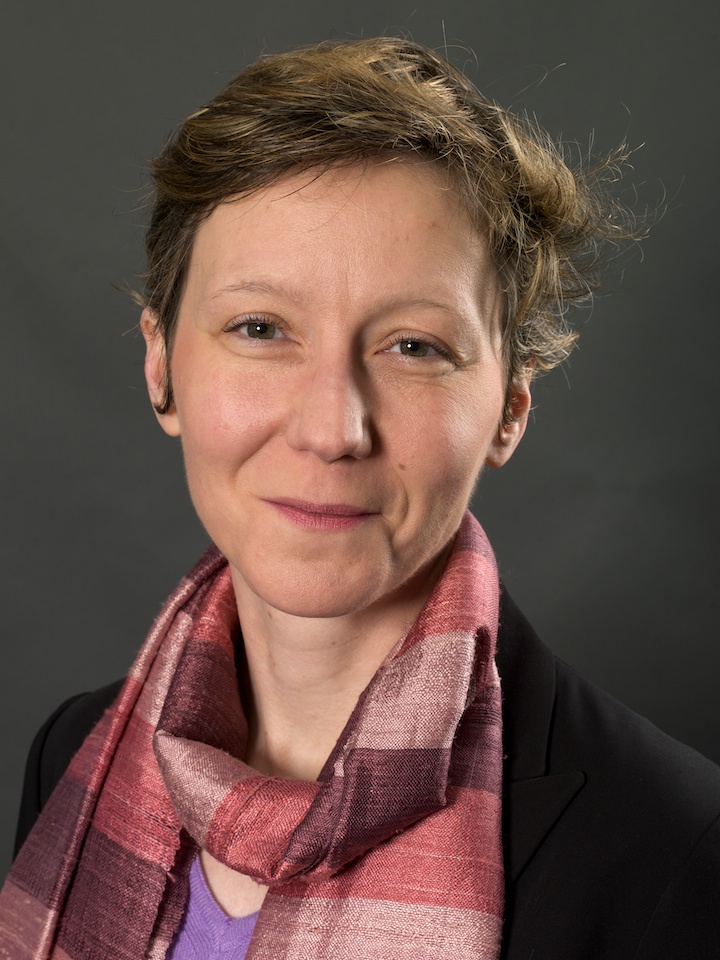
Dr. Valerie Gacogne - France
- Founder of Complexio
- Complexio
- www.complexio.eu
- Research
Interactive and Dynamic Simulations of Complex Systems, System Dynamics, Economics, transport economics


Matthieu Galley - France


Yérali Gandica - France
- Laboratoire De Physique Théorique et Modélisation


Dr. Daniel Gandolfo - France
- Prof.
- (CPT-CNRS)
- French Ministery of Education and Research
- Research
Statistical mechanics, Random graphs.


Floriana Gargiulo - France
- ((GEMASS))


Dr. Cédric Gaucherel - France
- Dr of Sc. (HDR)
- botAnique et bioInforMatique de l'Architecture des Plantes (AMAP)
- Institut National de la Recherche Agronomique (INRA)
- http://umramap.cirad.fr/amap3/cm/index.php?page=cedric-gaucherel
- Research
Central subject of interest are ecosystem and landscape functionning.


Odile Gaultier-Voituriez - France
- CEVIPOF (Sciences Po)


Bruno Gaume - France
- (CLLE)


Noé Gaumont - France
- Centre d_Analyse et de Mathématique Sociales (CAMS)


Noé Gaumont - France
- Centre d_Analyse et de Mathématique Sociales (CAMS)


Thomas Gautier - France


Dr. Mathieu Génois - France
- MCF
- Centre de Physique Théorique (CPT)
- Aix-Marseille université (AMU)

Dr. Nicolas Gensollen - France
- Postdoc
- Laboratoire d_Informatique de Paris 6 (LIP6)
- https://nicolasgensollen.github.io/
- Research
I am a postdoctoral reasearcher in the Complex Networks team, at the computer science laboratory of Paris 6 (LIP6) since December 2018. My work at LIP6 is focused on designing methods for the automatic detection of anomalies in large sequences of interactions. I also have a strong interest in the study of social systems relying on the blockchain technology.


Dr. Jean-Pierre J. Georgé - France
- Associate Professor
- Institut de Recherche en Informatique de Toulouse (IRIT)
- Université Toulouse 3 – Sabatier
Centre National de la Recherche Scientifique (CNRS)
- Research
I am an Associate Professor (Maître de conférence) in Computer Science at the Paul Sabatier University in Toulouse, France.
My speciality is Artificial Intelligence and more precisely Emergent Problem Solving using Cooperative Self-Organization and Multi-Agent Systems.


Prof. Michael Ghil - France
- Professor
- Centre d'Enseignement et de Recherche sur l'Environnement et la Société
- Ecole Normale Supérieure - Ulm (ENS Ulm)
- http://www.atmos.ucla.edu/tcd/
- Research
In the Theoretical Climate Dynamics (TCD) group we study climate dynamics on all time scales -- from intraseasonal, through interannual and interdecadal, to millenial -- using the methods of dynamical systems theory. We apply these methods to observations, numerical models, and experiments concerning the climate system -- the atmosphere, ocean, bio- and cryosphere -- through collaboration with researchers in North America and on other continents. Our group is led by Prof. Michael Ghil of the Department of Atmospheric and Oceanic Sciences and Institute of Geophysics and Planetary Physics (Center for Earth Systems Research) at UCLA.


M. Adel Ghouti - France


Dr. Jacques Gignoux - France
- Directeur de recherches
- Paris Institute of Ecology and Environmental Sciences (iEES-Paris UMR 7618)
- Centre National de la Recherche Scientifique (CNRS)
- https://iees-paris.ufr918.upmc.fr/index.php?page%3Dfiche%26id%3D29%26droit%3D1


M. Pierre Glize - France
- engineer
- Institut de Recherche en Informatique de Toulouse (IRIT)
- Centre National de la Recherche Scientifique (CNRS)
- http://www.irit.fr/SMAC
- Research
http://www.upetec.org


Dr. Bruno M. Gonçalves - France
- Maître de conférences
- Centre de Physique Théorique (CPT)
- Centre National de la Recherche Scientifique (CNRS)
Aix-Marseille université (AMU) - http://www.bgoncalves.com
- Research
My research activity focuses on using computational, visualization and data analysis methods for the study of Complex Systems in a multidisciplinary context. Current projects include detailed epidemic modeling in structured populations; knowledge diffusion on large technological networks; and the study of human behavior through the analysis of proxy social network dynamics


Amélie Gonçalves - France
- (AGIR INRA)

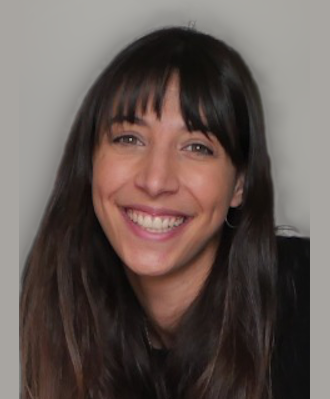
Juliana Gonzalez-Astudillo - France
- PhD candidate
- ((Aramis))


Valérie Gouet-Brunet - France
- Senior researcher
- Lab. LaSTIG /MATIS group
- (IGN)
- http://recherche.ign.fr/labos/matis/%7Evalerie.gouet-brunet
- Research
Valerie Gouet-Brunet has been research director in the LaSTIG Lab. of the French Mapping Agency (IGN) since 2012. Since 2014, she has been the head of the MATIS research group of the LaSTIG, which is dedicated to research on computer vision, photogrammetry and remote sensing for terrestrial, aerial and satellite imagery. Before, she was assistant professor at the Conservatoire National des Arts et Metiers in Paris, France. She obtained her PhD in Computer Science in 2000 from the University of Montpellier, France and her habilitation to direct research in 2008 from Pierre et Marie Curie University, France. _Her area of research includes content-based indexing and retrieval (CBIR) of collections of image and video contents at large scale, with a focus on local image descriptors, on the representation of spatial relationships and on multidimensional index structures.


philippe grandguillaume - France


Guillaume Gravier - France
- (CNRS / IRISA)


Michel Grossetti - France
- Centre National de la Recherche Scientifique (CNRS)
- http://www.univ-tlse2.fr/cers/annuaires/fiches_indivi/permanents/Michel_Grossetti.htm
- Research
Social theory
Social networks
Social dynamics


Dr. Eric P. Guichard - France
- HDR
- (équipe RST)
- Ecole Normale Supérieure - Ulm (ENS Ulm)
cole nationale supérieure des sciences de l'information et des bibliothèques (ENSSIB) - http://barthes.ens.fr
- Research
practices of the internet (sociology and measures), cyber-geography, history of (scientifical) writing, technologies of the intellect of today, epistemology


Prof. Jean-Loup Guillaume - France
- Professor
- Laboratoire d'Informatique de Paris 6 (LIP6)
- Université Paris 6 – Pierre et Marie Curie (UPMC)
Centre National de la Recherche Scientifique (CNRS) - http://jlguillaume.free.fr/www/


Guillaume Guimbretière - France
- Research Fellow
- ((CEMHTI))
- (CNRS)


Prof. Frédéric Guinand - France
- Professor
- Laboratoire d'Informatique, du Traitement de l'Information et des Systèmes (LITIS)
- Université Le Havre Normandie (ULH)
- http://litis.univ-lehavre.fr/~guinand

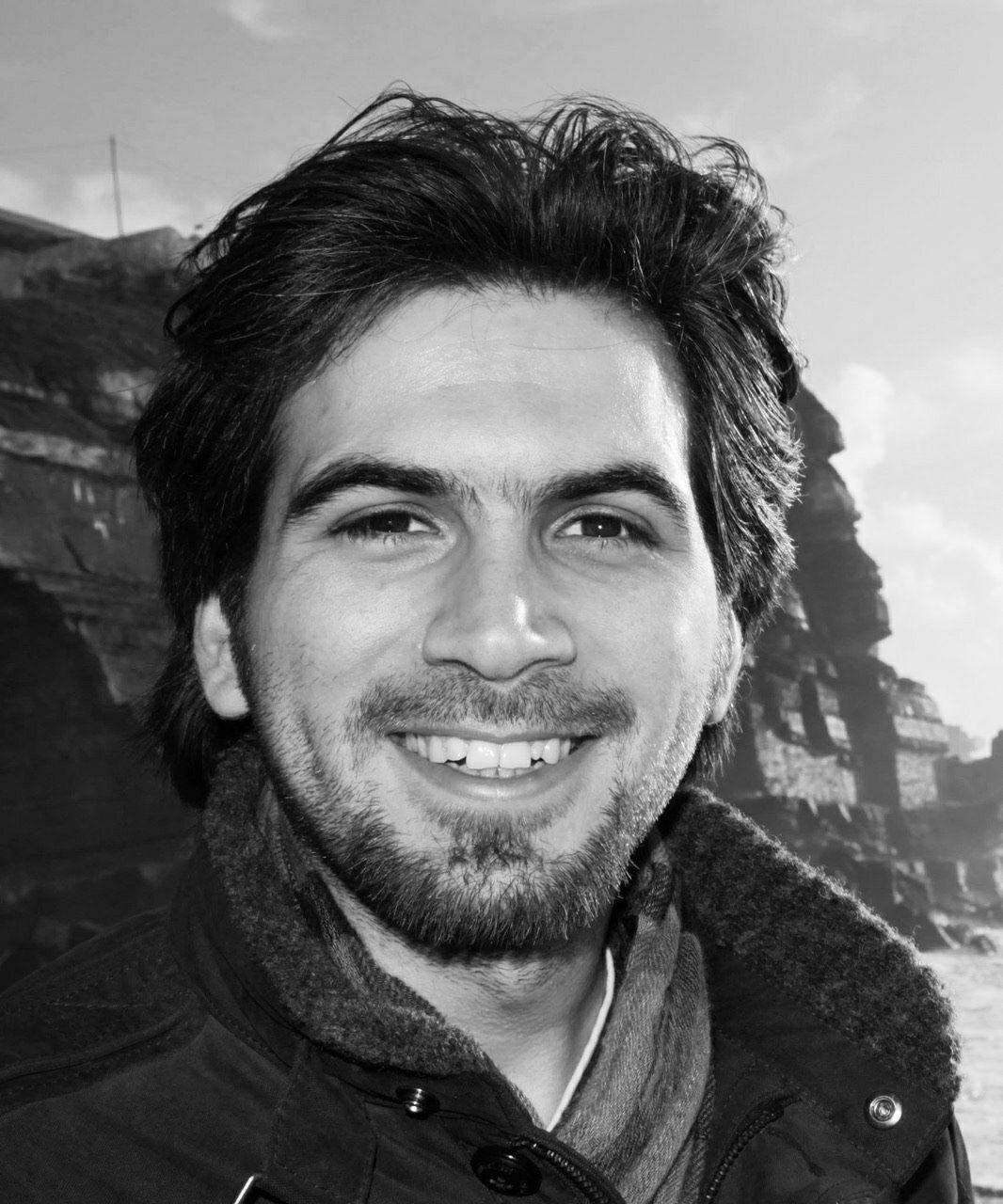
Dr. Önder Gürcan - France
- Researcher
- Trustworthy, Intelligent and Self-Organizing Systems Laboratory
- Commissariat à l_Energie Atomique (CEA)
- https://about.me/ondergurcan
- Research
I am interested in working on interdisciplinary topics that combines distributed problem solving with other domains like multi-agent systems, collective intelligence, self-organization and self-adaptation, simulation of biological systems, distributed clock synchronization, economy and law.


Dr. Boris Gutkin - France
- senior researcher
- (GNT)
- Ecole Normale Supérieure - Ulm (ENS Ulm)
- www.gnt.ens.fr
- Research
Computational neuroscience, dynamical systems, addiction research, stochastic differential equations.


José Halloy - France
- Laboratoire Interdisciplinaire des Energies de Demain LIED UMR8236


José Halloy - France
- (LIED UMR8236)


Aurélien Hazan - France
- Assistant professor
- Laboratoire Images, Signaux et Systèmes Intelligents (LiSSi)
- Universite de Paris Est Créteil (UPEC)
- https://hazan.xyz
- Research
Ordered networks (e.g. industrial processes, lifecycle analysis). Maximum entropy. Power flow. Economic network.


Dr. Thomas M. Hermans - France
- Assistant professor
- Université de Strasbourg (UDS)
- www.thomashermans.com
- Research
...obtaining adaptive, self-healing, self-replicating and ultimately living systems (and materials) using molecular self-assembly under far-from-equilibrium conditions.


Dr. Laura Hernandez - France
- (in french : MdC-HC, HDR)
- Laboratoire de Physique Théorique et Modélisation UMR8089 CNRS-UCP (LPTM)
- Université de Cergy-Pontoise
- https://www.researchgate.net/profile/Laura_Hernandez13
- Research
I_m a physicist, associate professor at Cergy Pontoise University since 1993, I did my undergraduate studies at Buenos Aires University, I have obtained my PhD in Physics in 1993 at the Institut Nationale des Sciences Appliquées (INSA) Toulouse, France and my HDR (Habilitation to Conduct Research_ French diploma) in 2015, at Cergy Pontoise University. I_m involved in several organizations that promote and develop the study of Complex Systems. I_m a member of the Direction Board of the Institute of Complex Systems of Paris-Ile-de-France (ISCpif). I_m also a Councilor of the Complex System Digital Campus (CS-DC Unitwin UNESCO). and of the Complex Systems Society (CCS). My research interests go from the study of complexity in Physics, as in Phase Transitions or Disordered Magnetic Systems, to the study of Complex Systems in other fields like Ecology or Social Sciences, with the tools and the point of view of Physics. I have created (2009) and directed until 2015, the Complex Systems Path of the Master Theoretical Physics and Applications, double diploma program in association with the Universidad de Zaragoza, Spain, that had obtained the label of _French-Spanish Master_.


Laura Hernandez - France
- Laboratoire de Physique Théorique et Modélisation (LPTM)


Dr. Vincent Hilaire - France
- Associate Professor
- www.utbm.Fr
- Research
Multi-Agent Systems, Holonic Systems, Organisational theories, Formal methods


Danielle Hilhorst - France
- Directeur de Recherche
- www.math.u-psud.fr/~readilab
- Research
Analyse Non Linéaire des Equations aux Dérivées Partielles -- Analyse Numérique
Modélisation mathématique en
biologie, médecine, chimie et
milieux poreux


Dr. Brigitte Hoeltzener - France
- Spécialiste Management et Qualité de projets
- Institut des Systèmes Complexes de Paris Ile-de-France (ISCPIF)
- http://www.ensta-bretagne.fr/scigrad11


Gilles Hubert - France
- Associate professor
- Institut de Recherche en Informatique de Toulouse (IRIT)
- Université Toulouse 3 - Sabatier
- https://www.irit.fr/%257EGilles.Hubert/


Dr. Isabelle Hue - France
- Dr
- (BDR)
- Institut National de la Recherche Agronomique (INRA)
- http://www4.jouy.inra.fr/bdr/Presentation


Roberto Interdonato - France
- (CIRAD - UMR TETIS)


David ISC-PIF - France


Dr. Marc Jeanpierre - France
- Assistant professor
- (_NULL)
- Université Paris 5 - Descartes (Paris 5)
- Research
Extracting meaningful information from DNA


Mr Job - France
- Institut des Systèmes Complexes de Paris Ile-de-France (ISCPIF)


Prof. François Jouen - France
- Professor
- http://chart.ephe.fr/
- Research
Complex systems modelling and simulation of brain development


Bertrand Jouve - France
- Institut d_Etudes des Systèmes Complexes de Toulouse


Dr. Rushed Kanawati - France
- Associate prof.
- www-lipn.univ-paris13.fr/~kanawati
- Research
Dynamic networks, Social network mining


M. Sergey Kirgizov - France
- PhD student
- Laboratoire d'Informatique de Paris 6 (LIP6)
- Université Paris 6 – Pierre et Marie Curie (UPMC)
Centre National de la Recherche Scientifique (CNRS) - http://www-complexnetworks.lip6.fr/~kirgizov/


M. Didier Kleitz - France
- engineer
- Université Paris 1 – Panthéon Sorbonne (Paris 1)


Dimitris Kotzinos - France
- Professor
- (((ETIS)))
- CY Cergy Paris University


PhD Emmanuel Labarbe - France
- PhD
- Centre d'Economie de Paris Nord
- Université Paris 13 – Villetaneuse, Bobigny, Saint-Denis (Paris 13)


Dr. David Lacoste - France
- Research fellow
- Gulliver (Gulliver)
- Ecole Superieure de Physique et Chimie Industrielle (ESPCI)
- www.pct.espci.fr/%7Edavid/
- Research
My research activities focus on the applications of non-equilibrium statistical physics to soft___matter and biological systems. I am generally interested in the___field of stochastic thermodynamics, and in particular, in the question of extracting relevant___information from the non-equilibrium fluctuations of complex systems.


Dr. François Ladieu - France
- Research fellow
- Service de Physique de l'Etat Condensé (SPEC)
- Commissariat à l'Energie Atomique (CEA)
- http://iramis.cea.fr/spec/Phocea/Pisp/index.php?nom=francois.ladieu

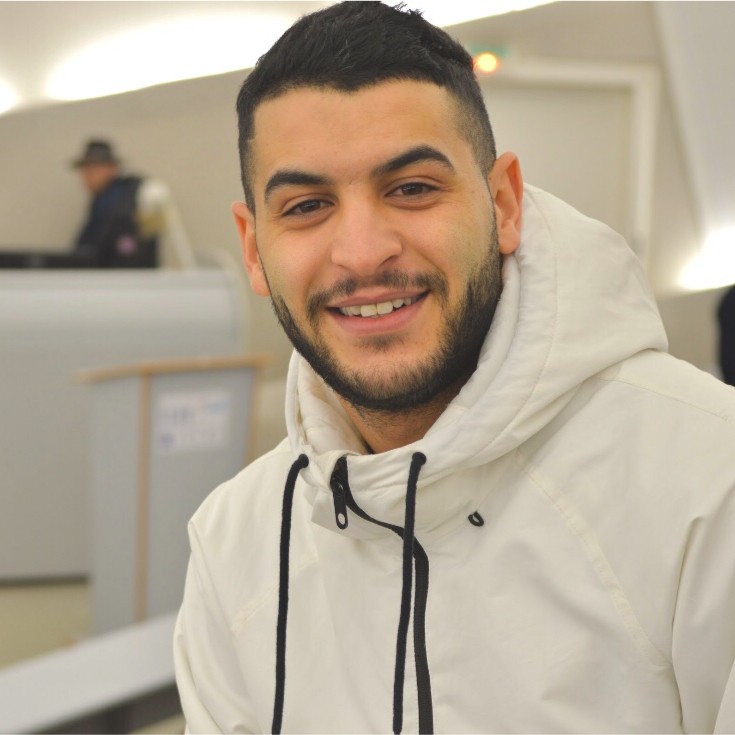
Mr Abdelghani Laifa - France
- PhD
- Laboratoire d_Informatique de Bourgogne - EA 7534
- https://www.linkedin.com/in/abdelghani-laifa-1b8023189/

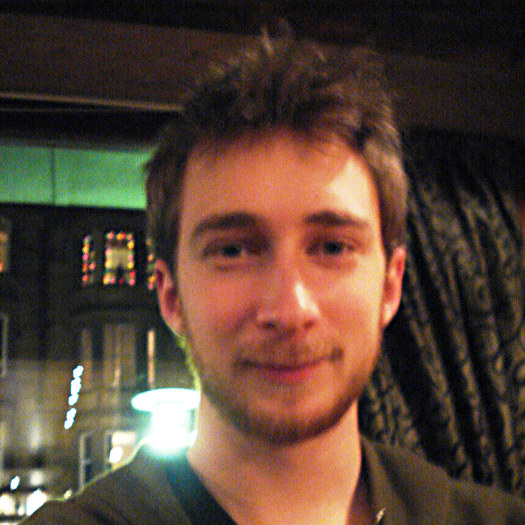
Dr. Robin Lamarche-Perrin - France
- Research Fellow
- Institut des Systèmes Complexes de Paris Ile-de-France (ISCPIF)
- Centre National de la Recherche Scientifique (CNRS)
- https://www-complexnetworks.lip6.fr/_lamarche/
- Research
I work on scalable methods for the analysis of complex systems. Information theory provides interesting measures for data aggregation, thus allowing to reach macroscopic description levels of complex data. I am interested in the application of such approaches to social systems, and in particular to the study of mass media, social media, and geographical information.


Prof. Amaury Lambert - France
- Professor
- Laboratoire de Probabilités et Modèles Aléatoires
- Université Paris 6 – Pierre et Marie Curie (UPMC)
- http://www.proba.jussieu.fr/pageperso/amaury/

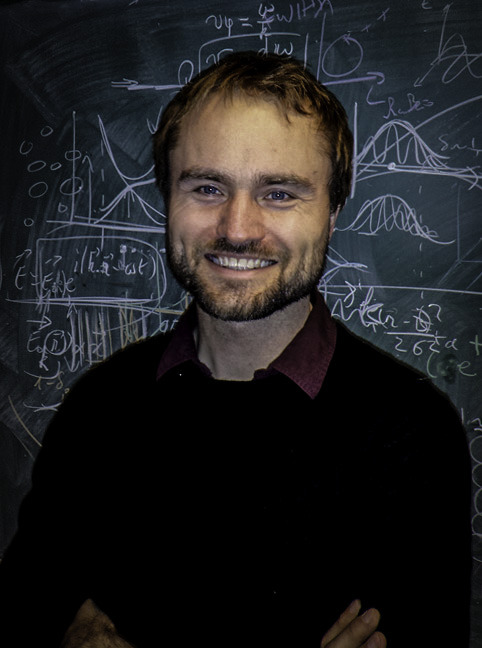
Prof. Dr. Mathieu Langer - France
- Associate Professor
- Institut d_Astrophysique Spatiale (IAS)
- Université Paris-Sud
- http://www.ias.u-psud.fr/langer
- Research
Complexity in astrophysics


Dr. Régis Lanneau - France
- Associate professor
- ((CRDP))
- Université Paris Nanterre


Valentina Lanza - France
- Laboratoire de Mathématiques Appliquées du Havre (LMAH)


Dr. Laurent Laval - France
- Research
(nonlinear) Control and Synchronization of complex systems
Chaotic/hyperchaotic systems
Chaos cryptography


Christophe Lavelle - France
- Genome Structure and Instability

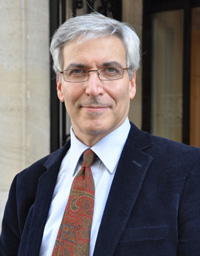
Prof. Emmanuel Lazega - France
- Professor
- Centre de Sociologie des Organisations - ORIO
- Sciences Po
- Research
Multilevel networks _Dynamic networks _Network literacy _Organization _Epistemic networks _Norms _Mobility


Emmanuel Lazega - France
- Professor
- Centre de Sociologie des Organisations
- Sciences Po


Didier Le Bail - France
- Centre de Physique Théorique (CPT)


Dr. Jean Le Fur - France
- scientist
- Centre de Biologie pour la Gestion des Populations (CBGP)
- Institut de Recherche pour le Développement (IRD)
- http://lefur.jean.free.fr
- Research
modelling and understanding generic aspects of living systems/ comparative application to several fields (fisheries, small rodents, scientific knowledge) / currently http:/simmasto.org


Frédéric Lecat - France
- ((LISIS))


Franck Leclercq - France
- Institut des Systèmes Complexes de Paris Ile-de-France (ISCPIF)


Henri Leridon - France
- Professor emeritus
- (_NULL)
- Institut national d_études démographiques (INED)


Françoise Lescourret - France


Claire Lesieur - France
- Institut rhônalpin des systèmes complexes (IXXI)


Dr. Annick Lesne - France
- Researcher
- laboratoire de Physique Théorique de la Matière Condensée (LPTMC / IHES)
- Centre National de la Recherche Scientifique (CNRS)
- http://www.lptmc.jussieu.fr/users/lesne


None Gabi Lipede - France
- PhD candidate
- Institut Jean Nicod
- Ecole des Hautes Etudes en Sciences Sociales (EHESS)
- http://www.institutnicod.org/membres/etudiants/doctorants/lipede-adeboye/?lang%253Dfr
- Research
My current research endeavors are focused primarily on the projected long-term effects of adaptive intersexual selection mechanisms, expressed in terms of constrained evolvability within and between populations, which I believe to be structurally homologous to the projected evolutionary trends that emerge from the late Collin Martindale_s most recent model of the psychodynamics of creative ideation and aesthetic reception (Martindale, 1990, 2009).


Quentin Lobbé - France
- Institut des Systèmes Complexes de Paris Ile-de-France (ISCPIF)


quentin lobbé - France
- Institut des Systèmes Complexes de Paris Ile-de-France (ISCPIF)


Maud Loireau - France
- (IRD - UMR ESPACE-DEV)


Alice Longhena - France
- (ICM)


Julien Longhi - France
- ((AGORA))

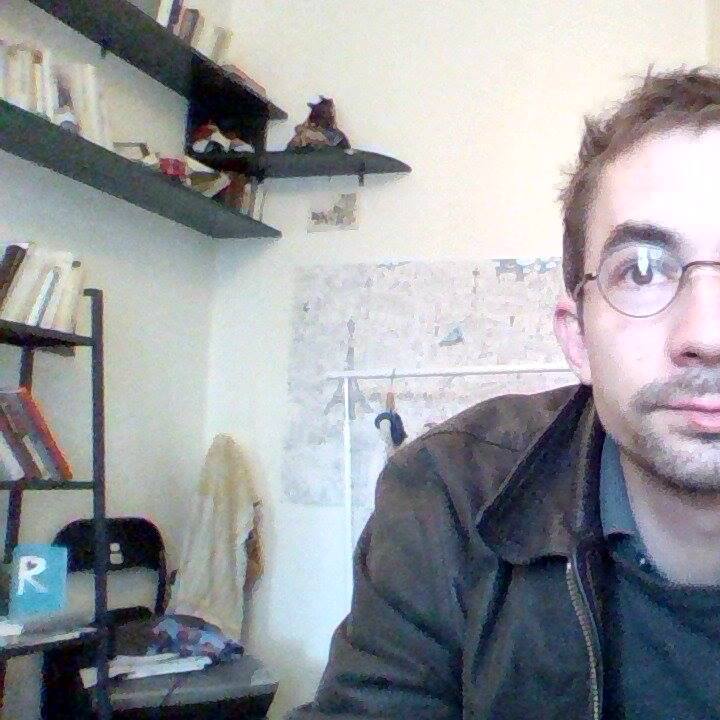
Mr Romain Loth - France
- Back-end developper
- Particeep
- https://github.com/rloth


Pierre-Yves Louis - France
- ((IMB))

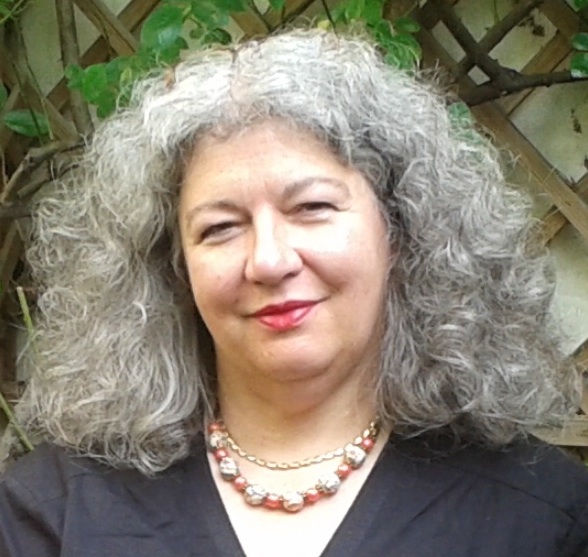
Dr. Evelyne Lutton - France
- DR
- INRAE, Mathématique et Informatique Appliquées UMR 518
- ((INRAE))
- https://evelyne-lutton.fr

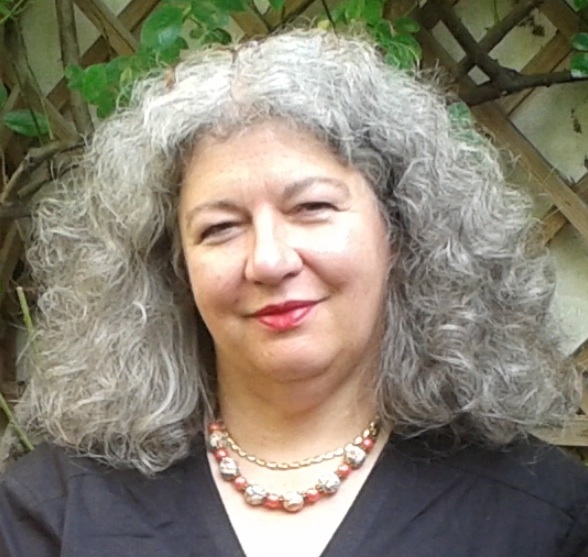
Dr. Evelyne Lutton - France
- Research Director
- (INRA-GMPA MIA Dpt)
- Institut National de la Recherche Agronomique (INRA)
- http://evelyne-lutton.fr
- Research
Interactive optimisation, interactive modeling, interactive evolutionary computation, cooperative co-evolution, visualisation, food science, signal and image processing, fractals _ art applications.


Anne L_Hôte - France


Dr. Clemence Magnien - France
- Researcher (CNRS)
- Laboratoire d'Informatique de Paris 6 (LIP6)
- Université Paris 6 – Pierre et Marie Curie (UPMC)
Centre National de la Recherche Scientifique (CNRS) - http://www-rp.lip6.fr/~magnien/
- Research
Complex Networks (Internet topology, Social Networks, Interaction networks, ...)
Measurement, Analysis and Modelling of these networks.
Study of the dynamics of these networks.


Marion Maisonobe - France
- Géographie Cités


Marion Maisonobe - France
- Géographie Cités


PhD Somsakun Maneerat - France
- PhD
- IDEES (IDEES)
- Centre National de la Recherche Scientifique (CNRS)
- Research
I conduct research in the modelling and simulation of Vector-borne disease in urban area. More precisely, I am working on the Dengue dynamics in two sites endemic India and Thailand.
The topic is concerned with problems in understanding the influence of the different parameters, concerning the environment, mosquito or human, on the epidemic dynamic.
But here, I am more particularly interested in the studying of mosquitos' behaviours and environment.
To achieve these objectives, I am interested in Multi agent-based modeling.


Prof. Diana Mangalagiu - France
- Professor & Visiting Fellow
- Institute for Science Innovation and Society (InSIS)
- University of Oxford (Oxford)
- http://www.reims-ms.fr/faculty_research/decision-en.html
- Research
How complex systems approach and its development/application can articulate with the social experimentation and with the practice of scenarios thinking and planning. How they might be better related/co-evolve in order to help private and public policy makers.


Dr. Jean-Francois Mangin - France
- Lab's head
- Institut d'Imagerie Biomédicale (I²BM)
- Commissariat à l'Energie Atomique (CEA)
- http://lnao.fr/spip.php?rubrique7
- Research
Neuroimaging, Computer Vision, Brain development, Cortical folding process, Brain connectivity, Markov Random Fields


Claudia Marinica - France
- ETIS Lab / LS2N Lab


Dr. Pascal G. Martin - France
- Permanent Scientist
- (UMR1331)
- Institut National de la Recherche Agronomique (INRA)
- https://www.toulouse.inra.fr/toxalim
- Research
transcriptomics, transcription, chromatin, R_Bioconductor, data analysis, nuclear receptors, liver, metabolism, metabolomics, toxicology


Sophie Martin - France
- Laboratoire d_Ingénierie des Systèmes Complexes (LISC)
- Institut national de recherche en sciences et technologies pour l_environnement et l_agriculture (IRSTEA)
- http://sophie.martin.perso.free.fr/


Valeria Mascolo - France


M. David V. Medernach - France
- Student


Romain MEJEAN - France
- PhD student
- ((UMR 5602 GEODE))
- Centre National de la Recherche Scientifique (CNRS)


Nathalie Méjean Perrot - France
- (INRA, CEPIA)


M. Christophe Menant - France
- Research
- Evolutionary and systemic approaches to meaning and cognition.
- Evolutionary scenarios regarding the nature of mind and consciousness.
- Trend to increasing complexity


Pierre Mercklé - France
- (PACTE)


Salma Mesmoudi - France
- Matrice/ Paris 1 university


Christian Meyer - France
- Dr
- Institut National de la Recherche Agronomique (INRA)
- http://www-ijpb.versailles.inra.fr


Prof. Olivier Michel - France
- Prof.
- Informatique, Biologie Intégrative et Systèmes Complexes (IBISC)
- Université d'Evry Val d'Essonne (UEVE)
Centre National de la Recherche Scientifique (CNRS) - http://www.lacl.fr/~michel
- Research
Modeling, simulation, declarative languages, topological rewriting, morphogenesis.


Prof. David F. Midgley - France
- Prof.
- (_NULL)
- www.insead.edu

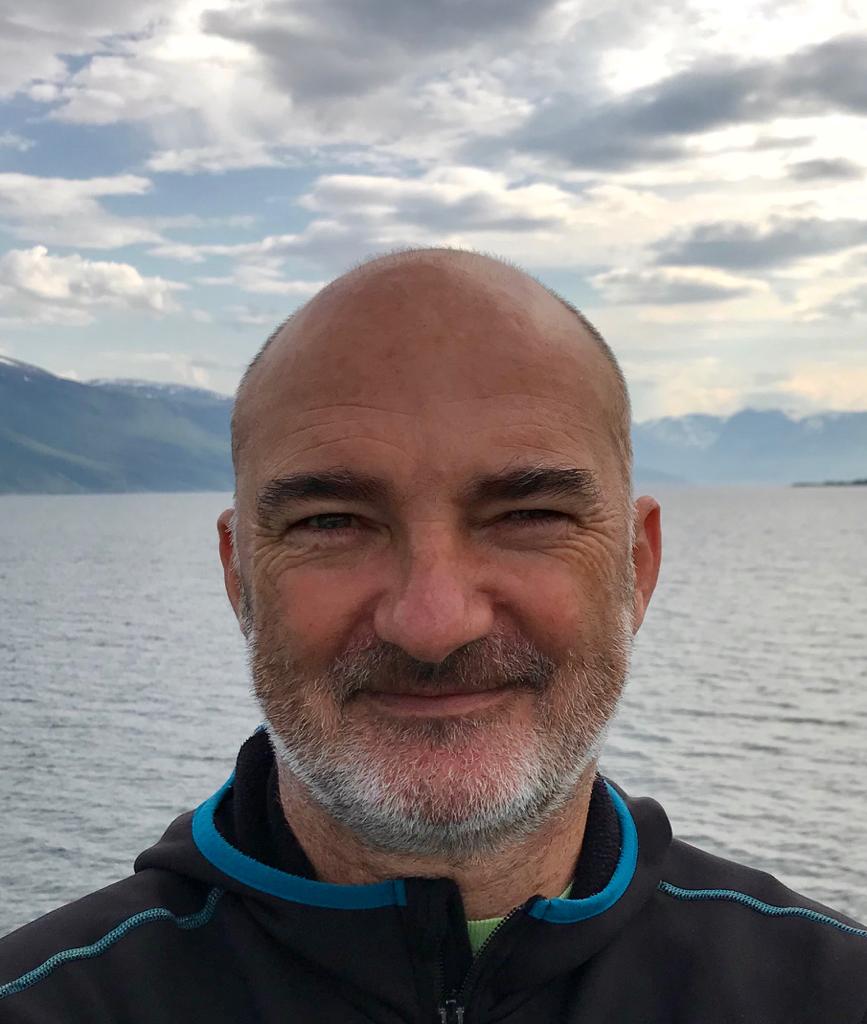
Frédéric Migeon - France
- Assistant Professor
- Institut de Recherche en Informatique de Toulouse (IRIT)
- CNRS, University of Toulouse


Béatrice Milard - France
- LISST (UMR 5193)

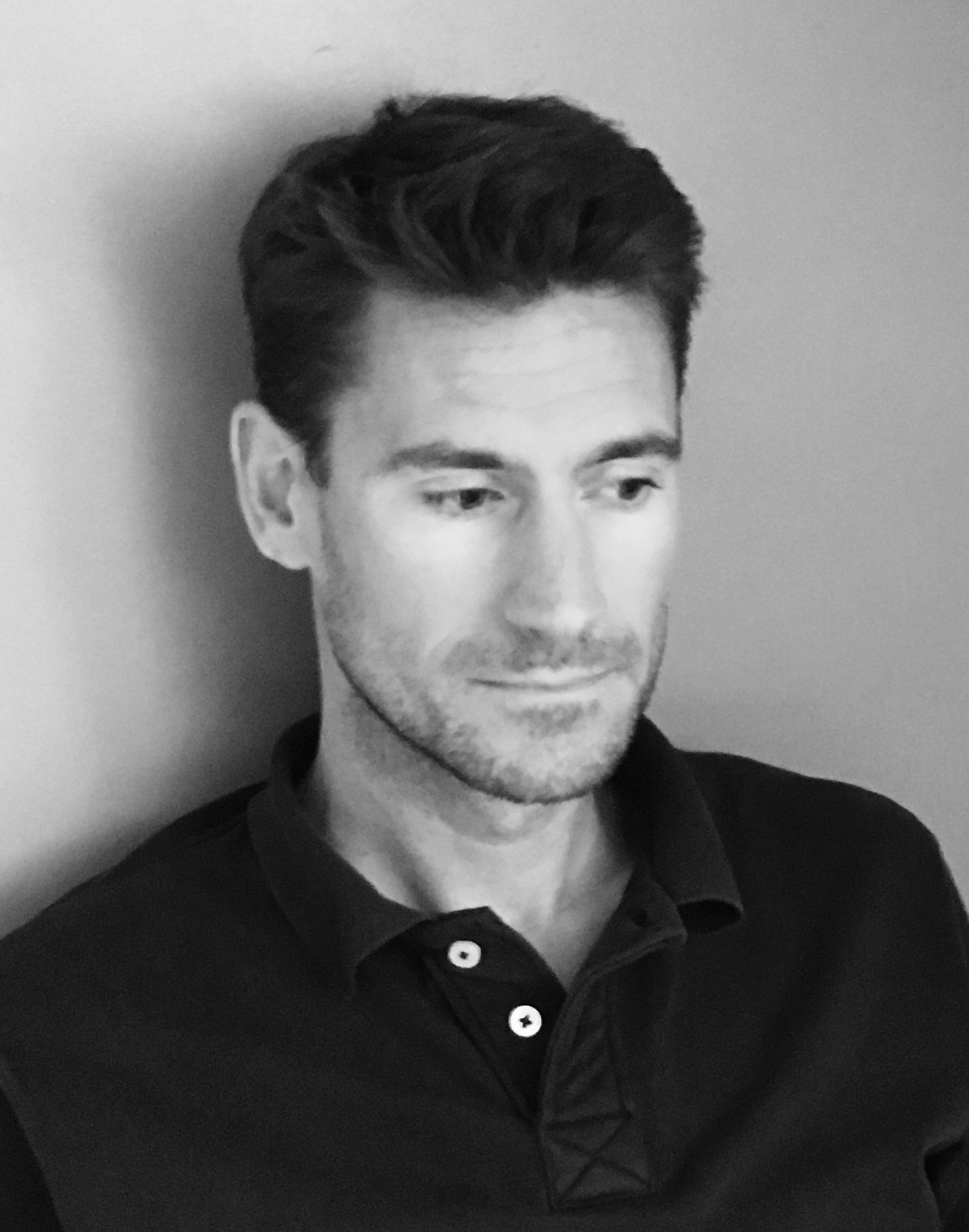
Dr. Yann Moalic - France
- Assistant Professor
- Laboratoire de Microbiologie des environnements extrêmes
- Université de Bretagne Occidentale
- http://pagesperso.univ-brest.fr/%7Eymoalic
- Research
System biology


PhD Samira Mobaied - France
- Associate Professor


Baptiste MOKAS - France
- Institut des Systèmes Complexes de Paris Ile-de-France (ISCPIF)


Dr. Hervé Monod - France
- Research fellow, head of dept
- INRA, Dept Mathématique et Informatique Appliquées (MIA)
- Institut National de la Recherche Agronomique (INRA)
- http://w3.jouy.inra.fr/unites/miaj/public/perso/HerveMonod_en.html

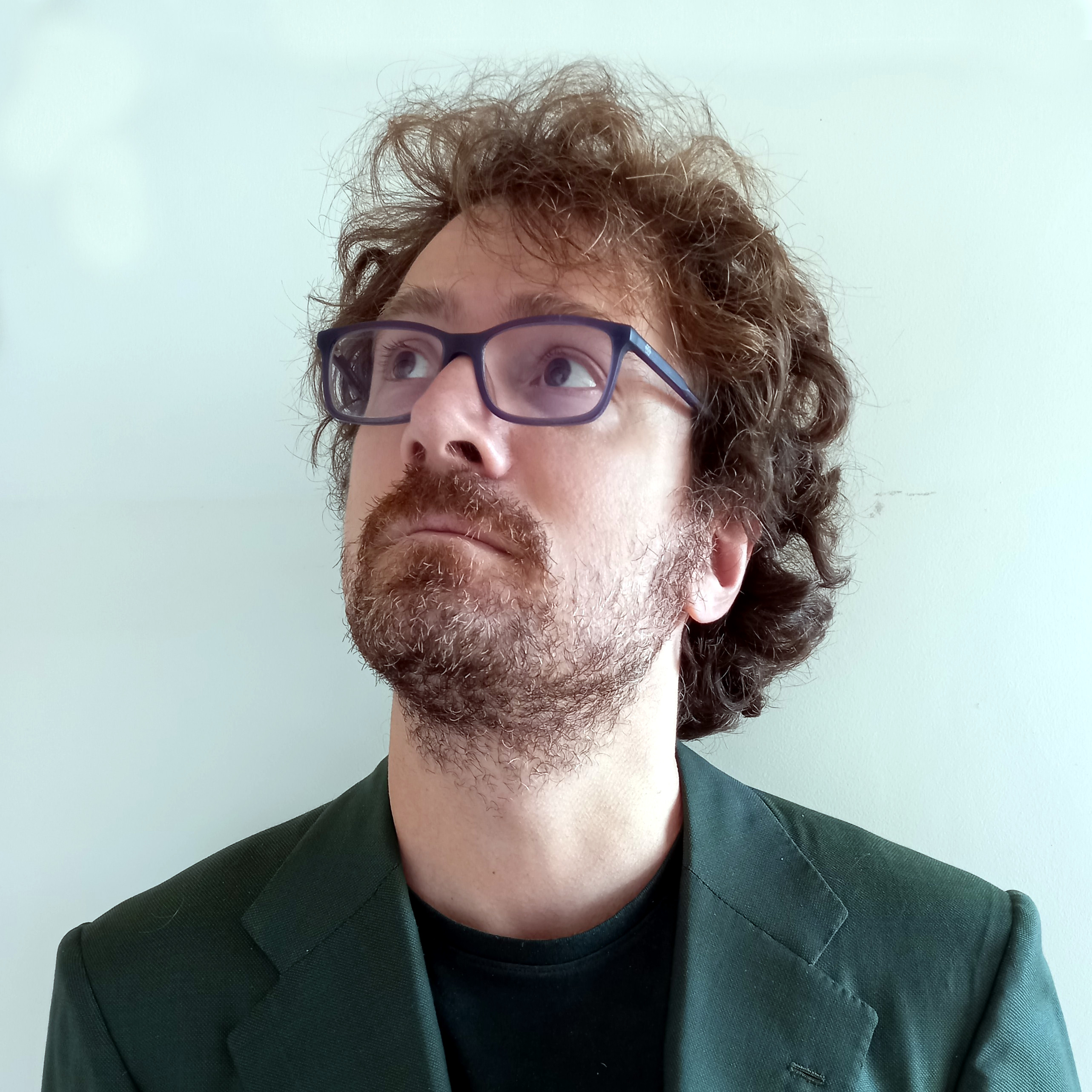
Maël Montévil - France
- Chargé de recherche
- Centre Cavaillès / UAR 3608 république des savoirs / Philosophy
- (CNRS)
- https://montevil.org/


Dr. Gildas Morvan - France
- Assistant professor
- Laboratoire de Génie Informatique et Automatique de l'Artois

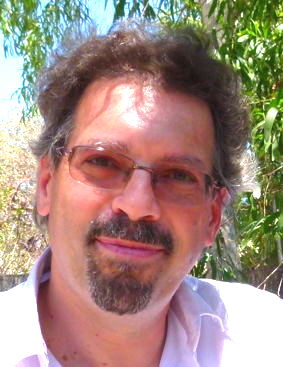
Prof. Jean-Pierre Muller - France
- Senior scientist
- Gestion des Ressources Renouvelables et Environnement (GREEN)
- Centre de Coopération Internationale en Recherche Agronomique pour le Développement (CIRAD)
- http://agents.cirad.fr/index.php/Jean%2BPierre%2BMULLER
- Research
Aïkido Spirituality


Dr. Jean-Pierre Nadal - France
- Centre d_Analyse et de Mathématique Sociales (CAMS)
- Centre National de la Recherche Scientifique (CNRS)
- https://cams.ehess.fr/jean-pierre-nadal/


Loïc Norgeot - France
- (ISCD)


Dr. Lulla Opatowski - France
- Assistant professor
- Unité de Pharmacoépidémiologie et Maladie Infectieuses
- Université de Versailles Saint Quentin

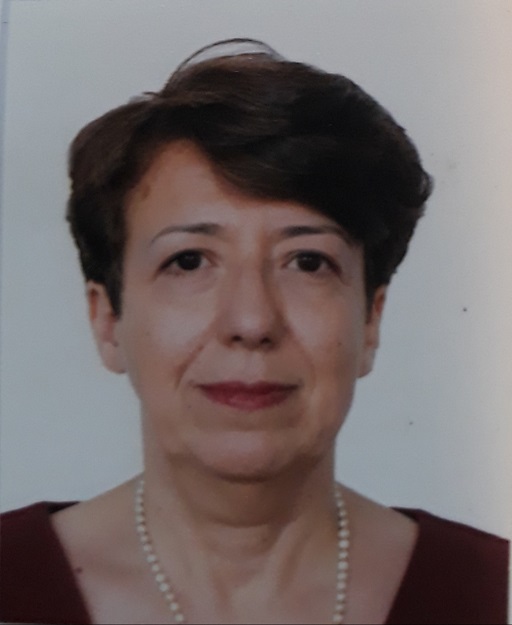
Prof. Dr. Fatima Oulebsir Boumghar - France
- independant


Maziyar Panahi - France
- Institut des Systèmes Complexes de Paris Ile-de-France (ISCPIF)


Dr. Jerome Pansanel - France
- Engineer
- (IPHC)


Dr. Marc Parenthoën - France
- Associate Prof.
- Lab-Sticc (Lab-sticc)
- Université Européenne de Bretagne (UEB)
- http://www.cerv.fr
- Research
At the European Center for Virtual Reality (CERV, Brest), we aim at building the virtuoscope : a virtual lab for studying models for complex systems. I aim to develop enactic : a methodology for building the virtuoscope that uses enaction paradigm at the level of models involved in the phenomenological knowledge of a particular domain. I've applied it to remote observation of sea states, Earth's thermal history and virtual sailing. It seems that the way by wich we creates autonomy based phenomenological models for natural phenomena also produces simulations that are of great interest for teaching.


Dr Pierre Parrend - France
- Senior Lecturer
- ICube/Complex System and Translational Biology
- ECAM Strasbourg-Europe
- http://icube-cstb.unistra.fr/fr/index.php/Pierre_Parrend


PhD Julien Perret - France
- Researcher
- (LaSTIG / COGIT)
- Institut National de l_Information Géographique et Forestière (IGN)
- http://recherche.ign.fr/labos/cogit/cv.php?nom%3DPerret

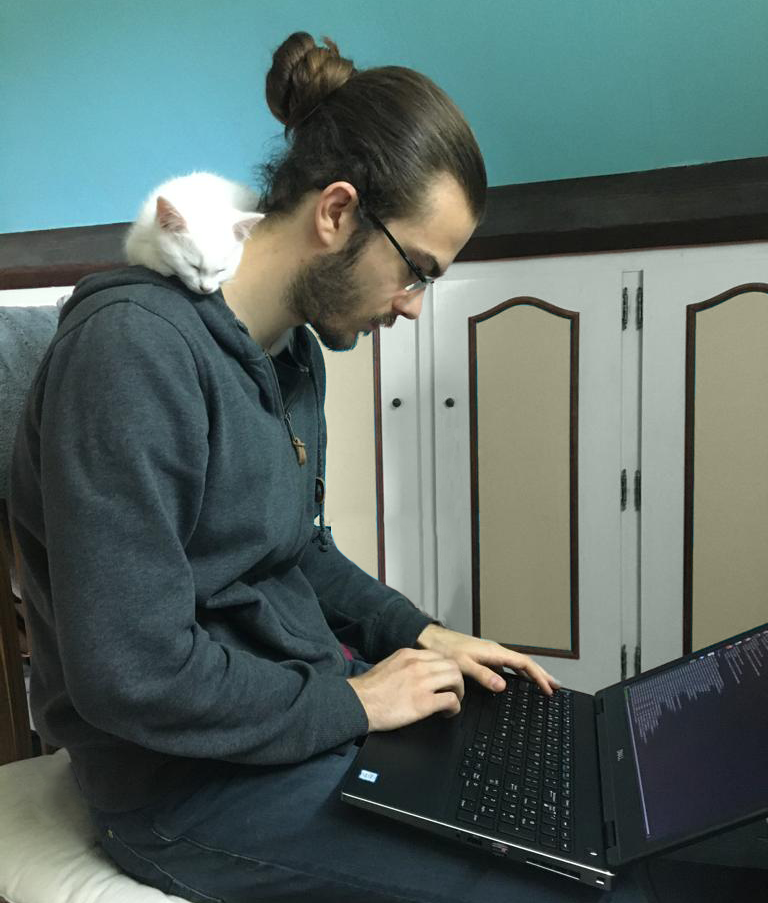
Rémi Perrier - France
- PhD Student
- Laboratoire de Physique Théorique et Modélisation (LPTM)
- CY Cergy Paris Université
- https://www.researchgate.net/profile/Remi-Perrier

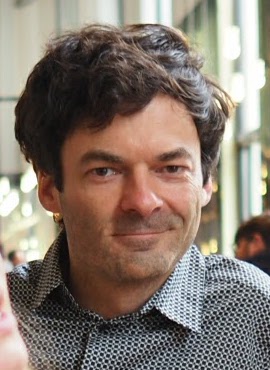
PhD Olivier Perriquet - France
- Artist and researcher
- Le Fresnoy-National studio of contemporary arts
- http://perriquet.net


Prof. Laurent Philippe - France
- Prof.
- Research
Parallelisation and Distribution of multi-agent systems


Arsène Pierrot-Valroff - France
- Institut des Systèmes Complexes de Paris Ile-de-France (ISCPIF)


Dr. Sébastien Plutniak - France
- École française de Rome
- https://cv.archives-ouvertes.fr/sebastien-plutniak


M. Thierry Poibeau - France
- Research fellow
- Centre National de la Recherche Scientifique (CNRS)
- http://www.lattice.cnrs.fr/poibeau/
- Research
I am a CNRS research fellow, working at LaTTiCe (Langues, Textes, Traitements informatiques et Cognition). I mainly work on Natural Language Processing (NLP), especially on the following topics: Information Extraction, Question Answering, Semantic Zoning, Knowledge Acquisition from text and Named Entity tagging. Apart from NLP, my main interests include Language Acquisition, Cognitive Science, Epistemology and the History of Linguistics.


Chiara Poletto - France
- (IPLESP INSERM)


Prof. Jerome Pousin - France
- Prof.
- Institut Camille Jourdan (ICJ)
- Institut National des Sciences Appliquées (INSA)
- http://maths.insa-lyon.fr/~pousin
- Research
Numerical methods; Finite element; EDP


Prof. Denise Pumain - France
- Professor
- Géographie Cités
- Université Paris 1 – Panthéon Sorbonne (Paris 1)
Centre National de la Recherche Scientifique (CNRS) - http://www.parisgeo.cnrs.fr
- Research
I am Director of Cybergeo, European Journal of Geography (www.cybergeo.eu). Former Chair of the Commission on Urban Development and Urban Life of the International Geographical Union (1992-2000), founder (1984) and Director (1992-2000) of the research laboratory P.A.R.I.S. (UMR Géographie-cités, CNRS), I am since 2006 director of the European Research Group S4 (Spatial Simulation for Social Sciences, www.S4.parisgeo.cnrs.fr), honorary director since 2011. This network is one of the projects of ISC-PIF. I am specialised in urban modelling and theoretical geography. My main scientific contribution is about building an evolutionary theory of urban systems and transferring concepts and models from self-organising complex systems towards social sciences. My last books "Hierarchy in natural and social sciences" and "Complexity perspectives in innovation and social change" are published by Springer in 2006 and 2009 in the Methodos Series.


Denise Pumain - France
- UMR Géographie-cités


Juste Raimbault - France
- Chargé de recherche
- LASTIG, Univ Gustave Eiffel, IGN-ENSG
- Institut Géographique National


Dr. Julien Randon-Furling - France
- Lecturer
- Statistique, Analyse, Modélisation Multidisciplinaire (EA 4543)
- Université Paris 1 - Panthéon Sorbonne (Paris 1)
- http://samm.univ-paris1.fr/Julien-Randon-Furling


Dr. Alain Rapaport - France
- Mathématiques, Informatique et STatistique pour l'Environnement et l'Agronomie (Mistéa)
- SupAgro Montpellier
Institut National de la Recherche Agronomique (INRA) - http://sites.google.com/site/alainrapaport/home
- Research
Modelling and simulation of microbial ecosystems, up to decision support tool based on optimization and control theoretic approaches.


Eric Rigaud - France
- centre de recherche sur les risques et les crises (CRC)


Dr. Stéphane Robin - France
- Researcher
- (MIA)
- Institut National de la Recherche Agronomique (INRA)
- http://www.agroparistech.fr/-Stephane-Robin-.html


Dr. François Robin - France
- Developmental Biology Lab/Robin/IBPS
- Centre National de la Recherche Scientifique (CNRS)


Sacha Roger - France


Orso Maria Romano - France
- Student
- Laboratoire Ecologie-Evolution
- Ecole Normale Supérieure - Ulm (ENS Ulm)


Thibaut Roubin - France
- Laboratoire d_Ingénierie des Systèmes Complexes (LISC)


Dr. Jean-Baptiste Rouquier - France
- postdoc
- Institut des Systèmes Complexes de Paris Ile-de-France (ISCPIF)
- Ecole Normale Supérieure de Lyon (ENS Lyon)
- http://www.rouquier.org/jb
- Research
common tools and methods for large networks arising in various complex systems fields


Prof. Dr. Marta Rukoz - France
- Prof.
- LAMSADE -University Paris Dauphine
- Centre National de la Recherche Scientifique (CNRS)
- https://www.dauphine.psl.eu/fr/recherche/enseignants/detail-cv/profile/marta-rukoz.html%20


Prof. Abd-El-Kader A. Sahraoui - France
- Professor
- Research
complex system engineering

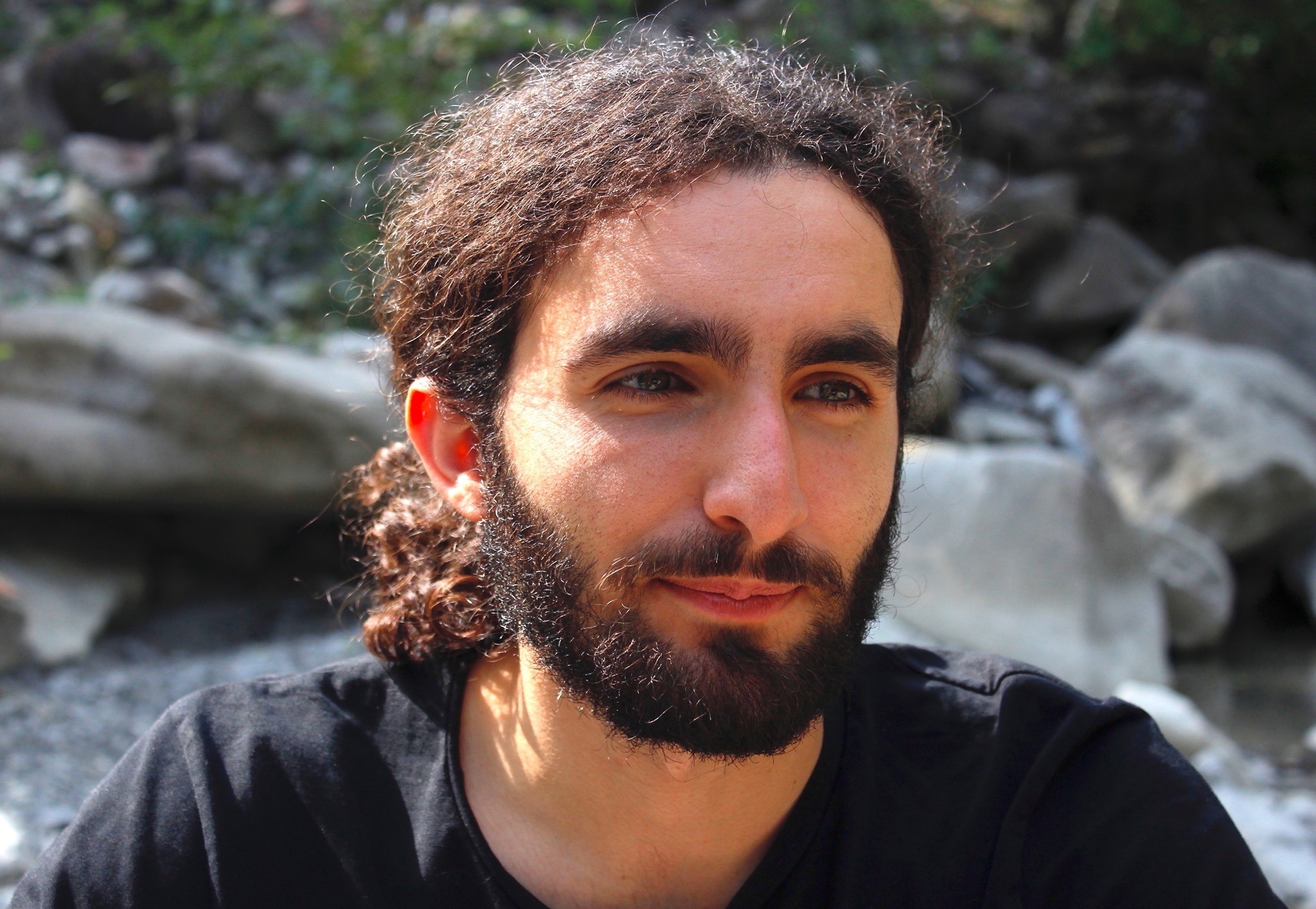
Mr Nicolas Salerno - France


Mathilde Saliou - France
- Freelance journalist


Gwenaël Samain - France
- (Médialab)


Eric Sanchis - France
- Associate Professor in Computer Science
- Université Toulouse 1 Capitole
- https://aral.iut-rodez.fr/index.php?page%3Dhome
- Research
Distributed systems, multi-agent systems, Systemics, complex systems, cognitive systems

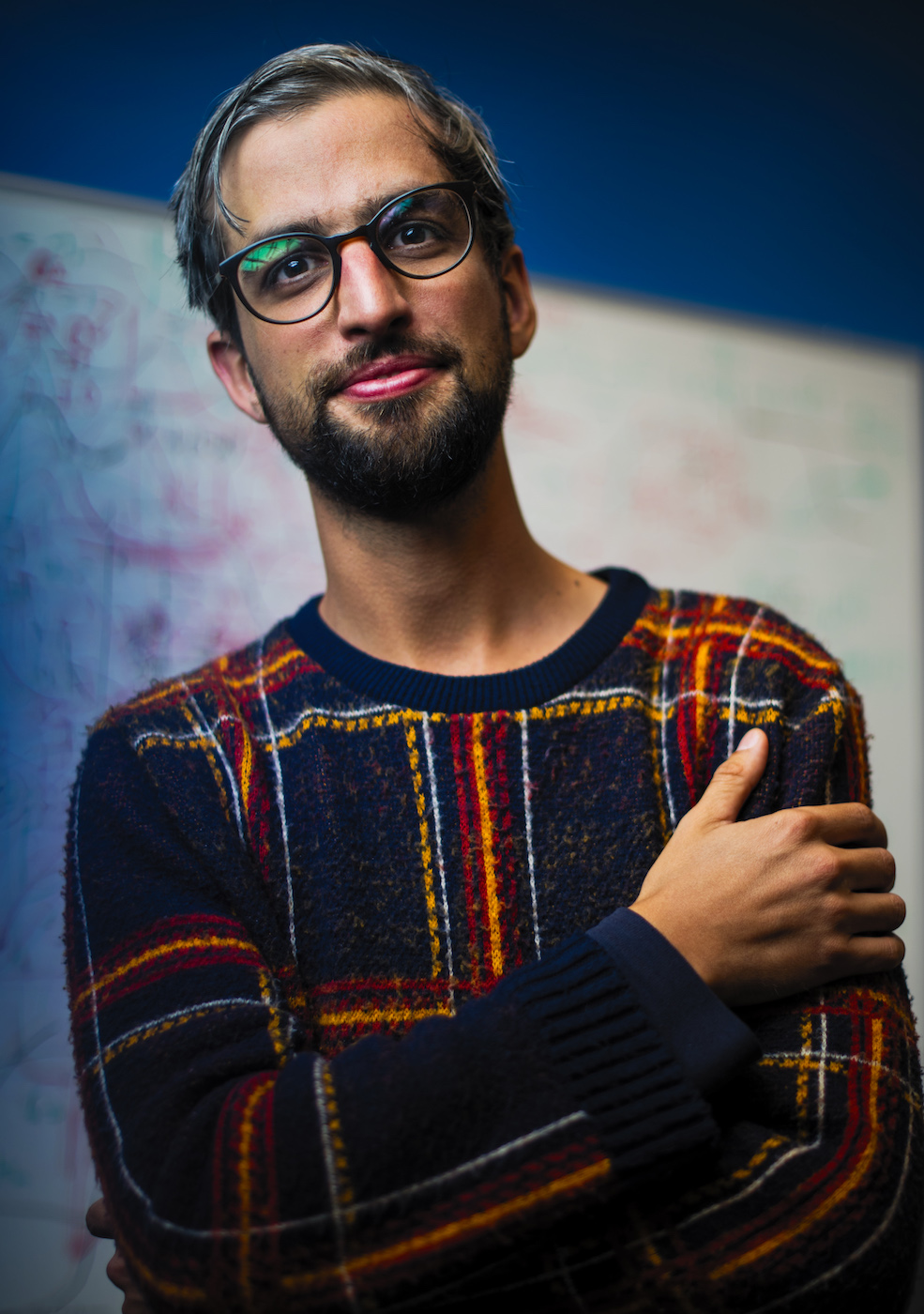
Dr. Marc Santolini - France
- Research Fellow
- Interaction Data Lab, LPI
- Université Paris Cité, INSERM, U1284
- https://interactiondatalab.com/


Dr. David Sarramia - France
- Assistant Professor
- Laboratoire de Physique Corpusculaire de Clermont-Ferrand (LPC)
- Université Blaise Pascal, Clermont-Ferrand (BPClermont)
Centre National de la Recherche Scientifique (CNRS) - http://clrwww.in2p3.fr/index.php/
- Research
complex system, simulation, multiagents, multi scale, multi modelling, celullar automata, interaction, behaviour, 3D, interactive simulation


Prof. Daniel Schertzer - France
- Professor
- Laboratoire Eau Environnement Systèmes Urbains (CEREVE)
- Ecole des Ponts ParisTech (ENPC)
- http://leesu.univ-paris-est.fr/spip.php?article324
- Research
Nonlinear Processes and Systems in Geophyssics and Environment, Scaling, Multifractals, Turbulence.


Thomas Schiex - France
- Permanent Scientist
- Institut National de la Recherche Agronomique (INRA)
- http://www.inra.fr/mia/T/schiex
- Research
Modeling and analyzing complex discrete systems (SAT, CSP, NP-complete and above problems).


clémentine schilte - France
- Centre de recherche translationnelle


Anne-Françoise Schmid - France
- associate professor
- http://fr.groups.yahoo.com/group/STOICA/
- Research
philosophy - epistemology - ethics


M. Thomas Schmitt - France
- Student


Dr. Marc Schoenauer - France
- Principle Senior Researcher
- Project-Team TAO (INRIA Saclay)
- Institut National de Recherche en Informatique et Automatique (INRIA)
- http://www.lri.fr/~marc


M. Dominique Sciamma - France
- Managing Director _ Dean
- Strate School of Design
- Strate School of Design
- http://dominique.sciamma.com
- Research
Emergence, stigmergia, artificial Intelligence, Artificial Life. Managing Direftor Board of Strate School ofg Design, a private school devoted to design, I created the Research lab of the school in 2010. I also created the _Interactive systems and objects_, a department devoted top intelligent systems and objects design in 2007.


hamida Seba - France
- (LIRIS)


Ababacar Sembene - France


M. Maziyar Shariat Panahi - France
- Engineer
- Institut des Systèmes Complexes de Paris Ile-de-France (ISCPIF)
- Centre National de la Recherche Scientifique (CNRS)
- Research
My special interests are auto-scalable, highly-available, and real-time Web and mobile applications by using bleeding-edge technologies such as Node.js, Socket.io, Express.js, Redis, and MongoDB. I am also working on real-time processing in Big Data by using Apache Shark and Impala along with batch processing by using Apache Hive on Amazon EMR Hadoop clusters and Cloudera Manager. Machine learning, building recommender engines by using Apache Mahout, and visualizing Big Data in realtime streaming from social networks especially Twitter on geo-location maps are my other interests.


Dr. David Sheeren - France
- Assistant Professor
- Dynamiques et écologie des paysages agroforestiers (DYNAFOR)
- Ecole Nationale Supérieure Agronomique de Toulouse (ENSAT)
- http://sheeren.free.fr/


Prof. Patrick Siarry - France
- Prof.
- Laboratoire Images, Signaux et Systèmes Intelligents (LiSSi)
- Universite de Paris Est Créteil (UPEC)
- Research
metaheuristics

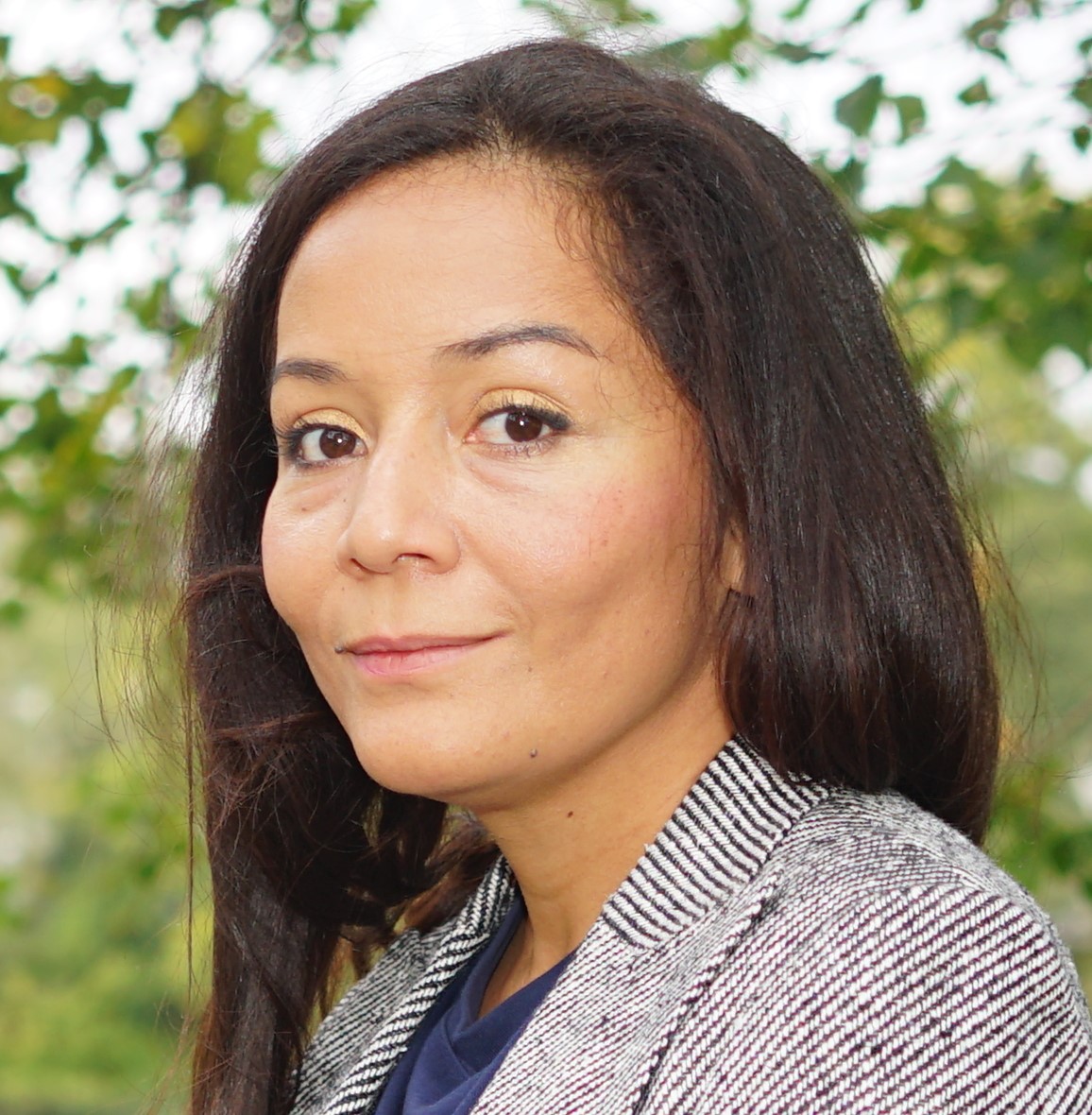
Dr. Milena-Jael Silva-Morales - France
- Urban Data Scientiste
- Ecolonical Lab
- Ecolonical Lab
- https://milena.systems/
- Research
Research interests: co-creating inclusive and interoperable smart urban service systems meeting citizens_ needs. Particularly interested in different life cycle stages of urban planning and urban data projects: ideation, prototyping, creation of data structure, heterogeneous data acquisition, data cleaning, data analysis, modeling, data visualization, and deployment.


Dr. Clément Sire - France
- Professor
- Laboratoire de Physique Théorique
- Université Toulouse 3 – Sabatier
- http://www.lpt.ups-tlse.fr/clement


Charline Smadi - France
- (IRSTEA)


henry soldano - France
- (LIPN)


Dr. Jean-Christophe Soulie - France
- Researcher
- Persyst Dept
- Centre de Coopération Internationale en Recherche Agronomique pour le Développement (CIRAD)
- http://www.cirad.fr
- Research
Artificial Intelligence, Artificial Life, Natural Ressources Modelling, Bio-economic Modelling, Simulation, Multi-agents Systems, Dynamic Systems


Dr. Cédric Sueur - France
- Associate Professor
- Département d'Ecologie, Physiologie, Ethologie
- Centre National de la Recherche Scientifique (CNRS)
- http://sites.google.com/site/cedricsueuranimalbehaviour/
- Research
Every day, millions of humans make decisions about issues of interest for the group or the community they represent. Equivalent processes have been described well by several authors for animal societies. Group members must take decisions satisfying the majority of individuals (i.e. decision accuracy) but in a relative short period (i.e. decision speed). Much time may be required to make an accurate decision between alternatives, because evaluating information may be a lengthy process. Nevertheless, empirical studies demonstrating the conflict between speed and accuracy in decision making are mostly investigations in the field of human performance and psychology. Several factors can affect this trade-off between speed and accuracy. Better information can enhance the efficiency of the decision. However, the decision efficiency also depends on the way individuals are inter-connected, that is, according to the social network. I want to assess how the information quality and social network may enhance the collective decision-making by increasing both the accuracy and the speed of the decision.
Ethobiosciences - Cabinet d'Ethologie: Expertise et Recherche en Bien-être et Comportement Animal / Research and Consultancy Agency in Animal Wellbeing and Behaviour. Ethobiosciences.com

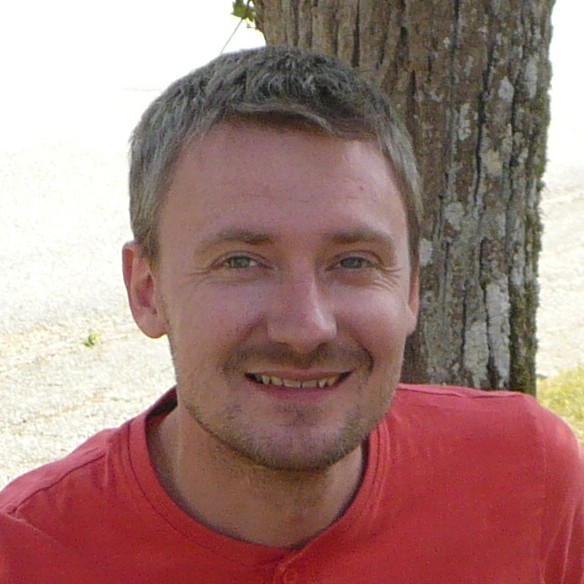
Dr. Fabien Tarissan - France
- Researcher
- Institut des Sciences sociales du Politique / ENS Paris-Saclay
- Centre National de la Recherche Scientifique (CNRS)
- http://tarissan.complexnetworks.fr/
- Research
My work mainly concerns the analysis and modeling of large networks encountered in practice, such as the Internet, the web, social networks or legal networks. These networks are typically represented by graphs and a set of techniques stemming from graph theory has already proven to be very useful to characterize and analyze their structure and to model their behavior by highlighting specific properties. My work follows this approach by proposing new theoretical tools in order to identify non-trivial properties of these networks and to define new models able to capture these properties.


PhD Andrea Tellini - France
- Post-Doc
- Centre d'Analyse et de Mathématique Sociales (CAMS)
- Ecole des Hautes Etudes en Sciences Sociales (EHESS)
Centre National de la Recherche Scientifique (CNRS)


Guy Theraulaz - France
- Centre de recherches sur la cognition animale, collective animal behavior lab, centre de biologie integrative


Prof. Daniel Thiel - France
- Professor
- Centre d_Economie de Paris Nord (CEPN)
- Université Paris 13 - Villetaneuse, Bobigny, Saint-Denis (Paris 13)
- http://thieldaniel.free.fr/
- Research
Multiagent modeling, system dynamics, automata networks

Dr. Véronique Thomas-Vaslin - France
- researcher CNRS
- UMRS959 Immunology, Immunopathology, Immunotherapy (I3)
- Université Paris 6 - Pierre et Marie Curie (UPMC)
- https://immunocomplexit.wordpress.com/about/veronique-thomas-vaslin/
- Research
Dynamics of lymphoid cell populations in the immune system_ Modeling and simulations of lymphocyte differentiation, selection and resilience to perturbations and aging


Coline Tison - France


Olivier Togni - France
- (LIB)


Alberto Tonda - France
- (GMPA, MALICES)


Virginie Tournay - France
- Centre de recherches politiques de SciencesPo


Dr. Suzanne Touzeau - France
- Researcher
- UMR1355 Institut Sophia Agrobiotech
- Institut National de la Recherche Agronomique (INRA)


Alain Trouve - France


Paola Tubaro - France
- Laboratoire Interdisciplinaire des Sciences du Numérique (LISN)


liubov tupikina - France
- ID lab, city interaction lab


Stefano Ungaro - France
- Paris-Jourdan Sciences Economiques (PSE)


David Vandergucht - France
- (IGN/SR/MATIS)


David Vandergucht - France
- ((IGN/SR/MATIS))


Dr. Franck Varenne - France
- Associate Professor
- ((GEMASS))
- Université de Rouen Normandie
- https://monsite.orange.fr/franck.varenne.eng/
- Research
epistemology of models and simulations _ types of computer simulations _ pluriformalisms _ multimodeling _ epistemology of computational sciences of complex systems _ epistemology of complex and integrative models of complex systems


Julien Velcin - France
- Laboratoire ERIC


Antoine Vendeville - France
- PhD student
- Department of Computer Science
- University College London (UCL)

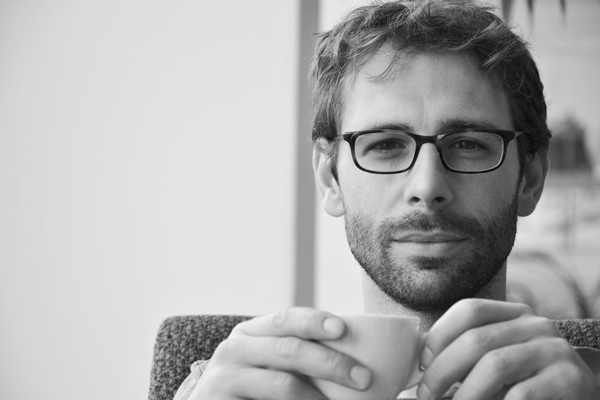
Tommaso Venturini - France
- Institut des Systemes Complexes Region Rhone-Alpes
- https://www.tommasoventurini.it/wp


Paul Vernhet - France
- Institut des Systèmes Complexes de Paris Ile-de-France (ISCPIF)

Dr. Philippe Vernier - France
- Research Director
- Paris-Saclay Institute of Neuroscience
- Centre National de la Recherche Scientifique (CNRS)
- Research
_Comparative biology and evolution of catecholamine systems and forebrain in Chordates: The goal of our research is to understand how the neuromodulatory systems using monoamines (dopamine, noradrenaline, serotonin) have been shaped and organized along protochordates and vertebrates evolution. This work includes the analysis of the genetic mechanisms of the differentiation of the various catecholamine systems is several groups of chordates (ascidia, amphioxus, and zebrafish), with the aim of better understanding how the different functions of these systems has been recruited along evolution, and how their dysfunctions contribute to several pathologies ( Parkinson_s disease and ADHD).____Mechanisms of the development and evolution of the forebrain in vertebrates: we are studying the rôle of genes which govern the formation and the organization of the telencephalon, hypothalamus and diencephalon, to understand how these areas have been modified and adapted to functions according the lifestyle of the different groups of vertebrates


Prof. jerome verny - France
- Associate Professor
- MOBIS - RBS Sustainable Mobility and Systems of Systems


Christian L. Vestergaard - France
- Decision and Bayesian Computation / Neuroscience Dep. / Institut Pasteur


Emmanuel Viennet - France


annick vignes - France
- Centre d_Analyse et de Mathématique Sociales (CAMS)


annick vignes - France
- ((LISIS)/ INRAE)


Régine Vignes Lebbe - France
- Institut de Systématique Evolution Biodiversité


Dr. Jean-Pierre Vila - France
- Directeur de recherche
- Mathématiques, Informatique et STatistique pour l'Environnement et l'Agronomie (Mistéa)
- SupAgro Montpellier
Institut National de la Recherche Agronomique (INRA) - http://www.inra.fr/
- Research
Stochastic Dynamical Systems
Filtering theory
Stochastic control
Neural Networks
Optimal design of experiments


Dr. Eric Vincent - France
- Director of laboratory
- Service de Physique de l'Etat Condensé (SPEC)
- Commissariat à l'Energie Atomique (CEA)
- http://iramis.cea.fr/spec/


Margaux Vrech - France
- Laboratoire de Physique Théorique et Modélisation (LPTM)
- Centre National de la Recherche Scientifique (CNRS)

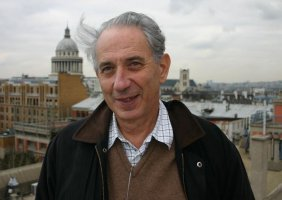
Prof. Gérard Weisbuch - France
- Research fellow
- Laboratoire de Physique Statistique (LPS)
- Ecole Normale Supérieure - Ulm (ENS Ulm)
- https://www.lps.ens.fr/%7Eweisbuch/


Hussein Yahia - France


Dr. Anastasia Yartseva - France

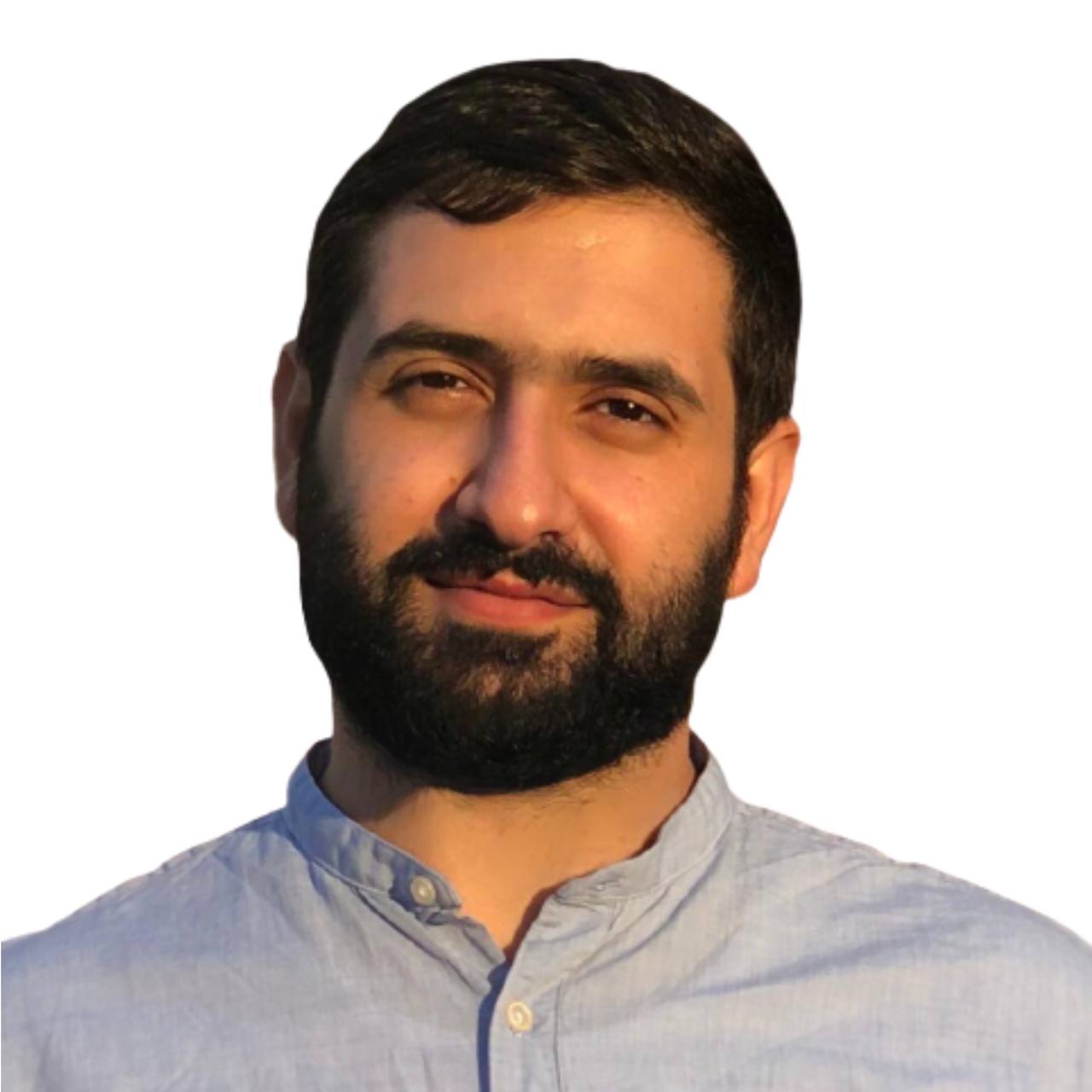
Ali Yassin - France
- PhD Student
- Laboratoire d_Informatique de Bourgogne (LIB)


Romain Yvinec - France
- INRA, Physiologie de la Reproduction et des Comportements


Dr. Gilbert Zalczer - France
- Service de Physique de l'Etat Condensé (SPEC)
- Commissariat à l'Energie Atomique (CEA)
- http://www-centre-saclay.cea.fr/


mina zamani - France


Prof. Hervé Zwirn - France
- Associate Professor
- Institut d'Histoire et de Philosophie des Sciences et des Techniques
- Université Paris 7 – Diderot (Paris 7)
- Research
President of Eurobios

Labs by alphabetical order
List of teams or labs mentioned by the scholars














Institutions:
- INRA - France
- Université de Lyon - Lyon, France










Institutions:
- CNRS - France
- Ecole Polytechnique - Palaiseau, France















Institutions:
- CNRS - France

Institutions:
- UNIBO - Bologna, Italy


















Institutions:
- CNRS - France













Institutions:
- CNRS - France
- Université Toulouse 1 - Capitole - Toulouse, France



Institutions:
- CNRS - France







Institutions:
- ENS Lyon - Lyon, France








Institutions:
- ULH - Le Havre, France




Institutions:
- ULH - Le Havre, France




Institutions:
- ENS Ulm - Paris, France







Institutions:
- Paris Sud - Orsay, France


Institutions:
- CNRS - France
- Université Lyon 2 – Lumière - Lyon, France














Institutions:
- UPEC - Créteil, France



Institutions:
- Université de Lorraine - Nancy, France
- INRIA - France







Institutions:
- INRA - France
- SupAgro Montpellier - Montpellier, France










Institutions:
- CEA - France















Institutions by alphabetical order
List of institutions to which scholars are affiliated






























































































